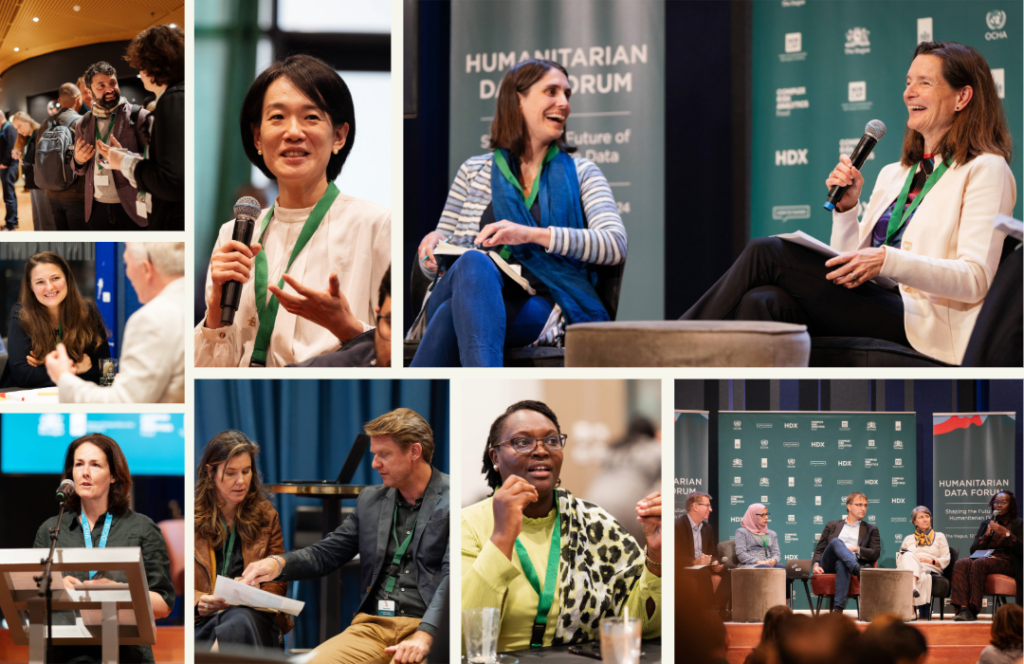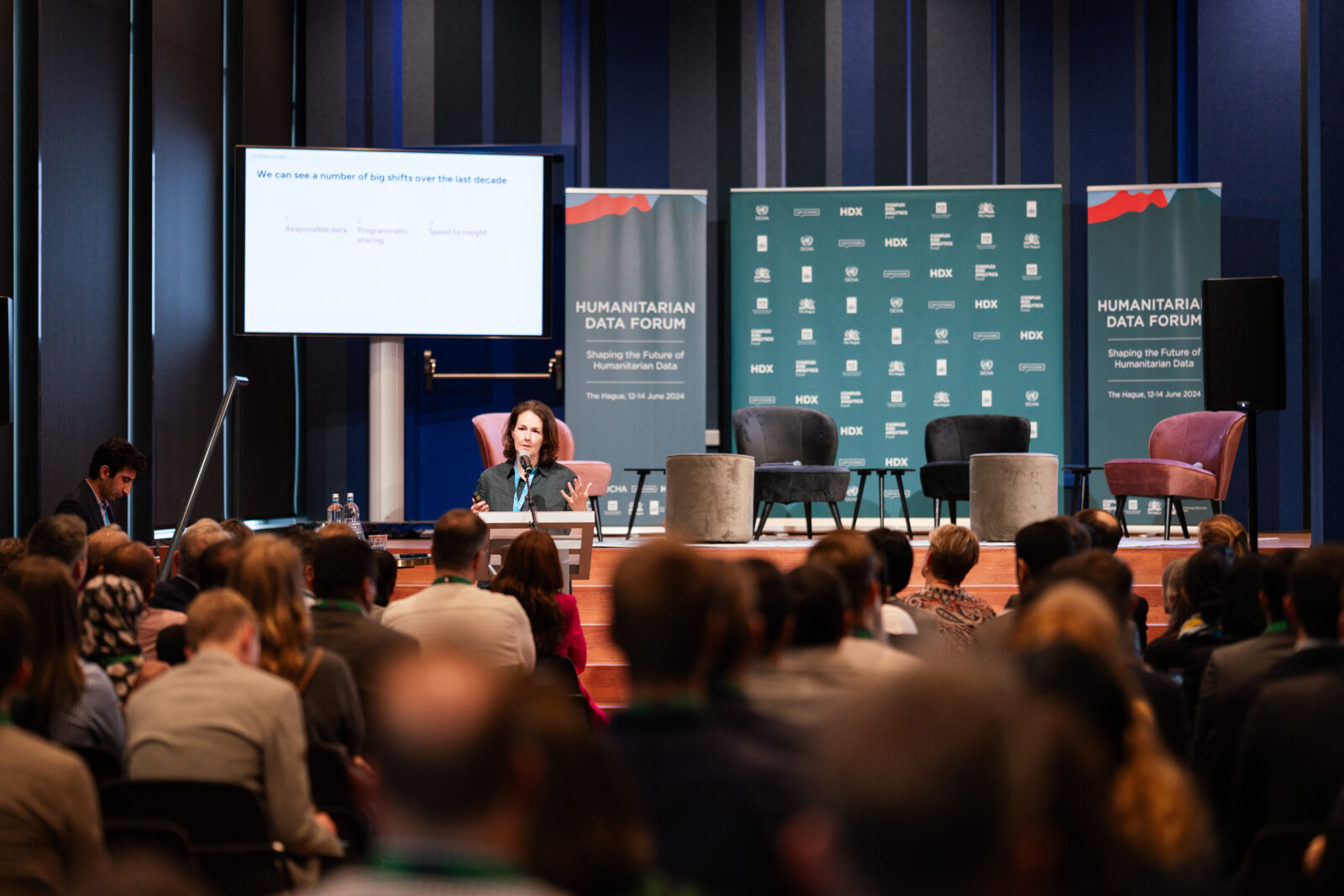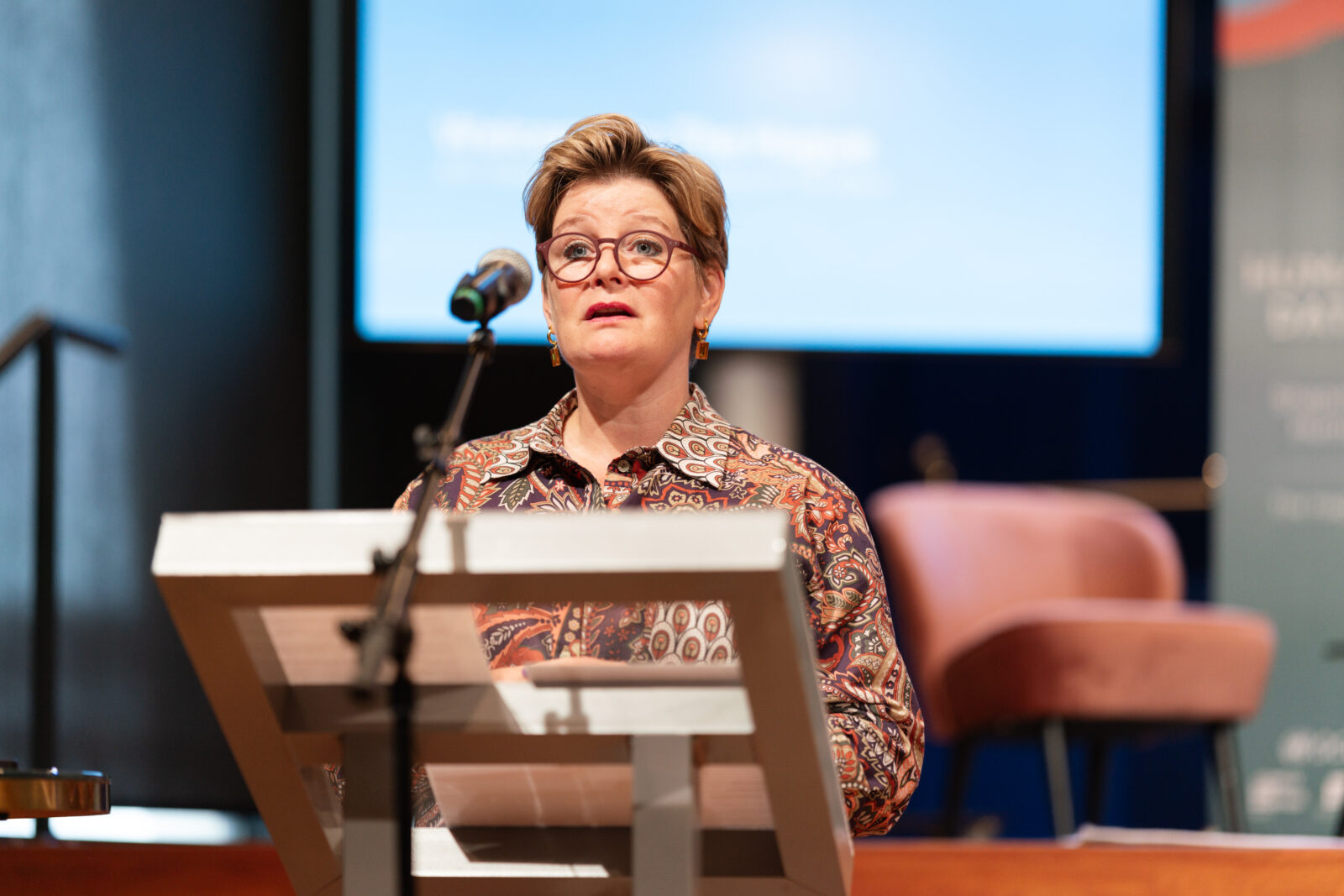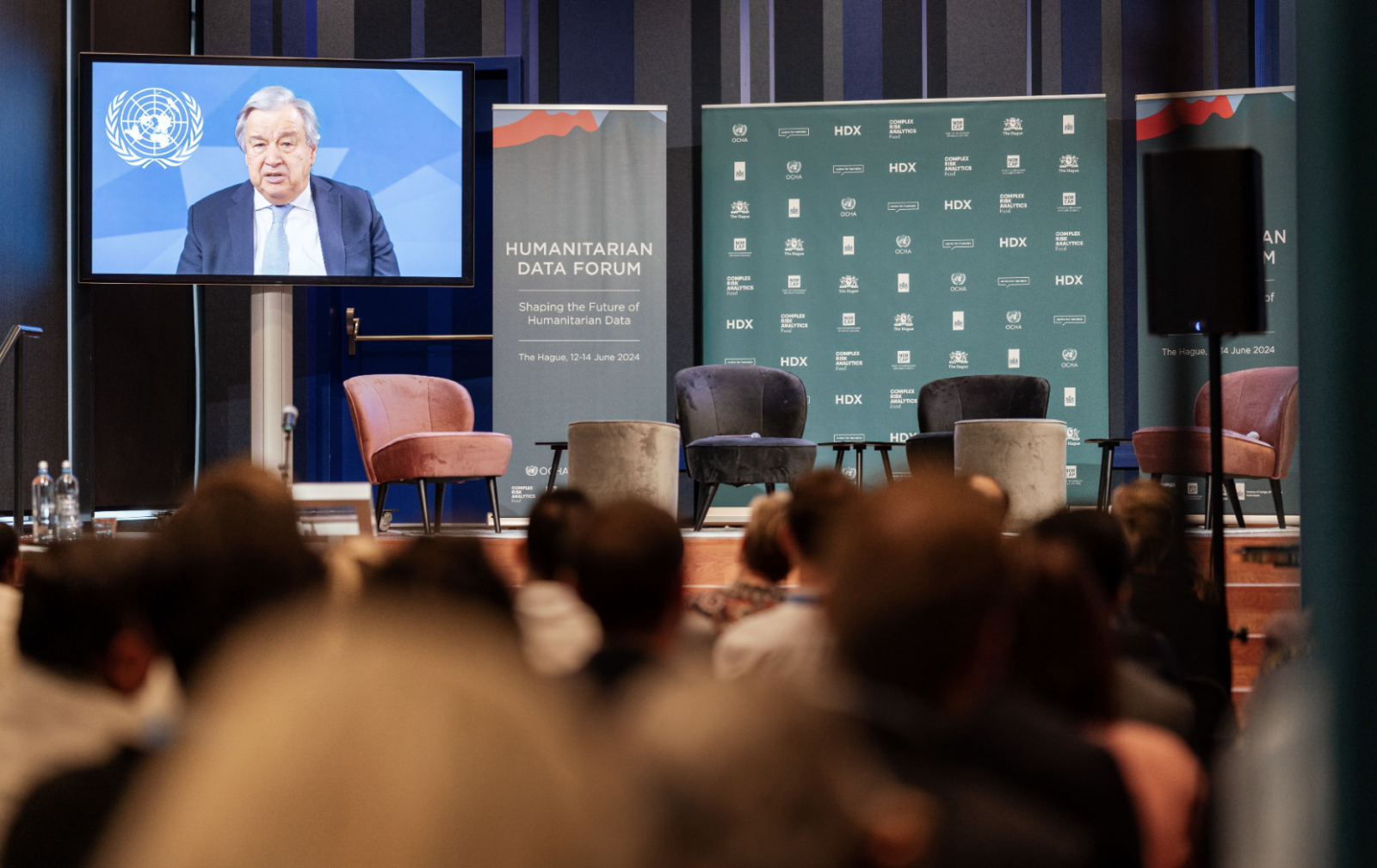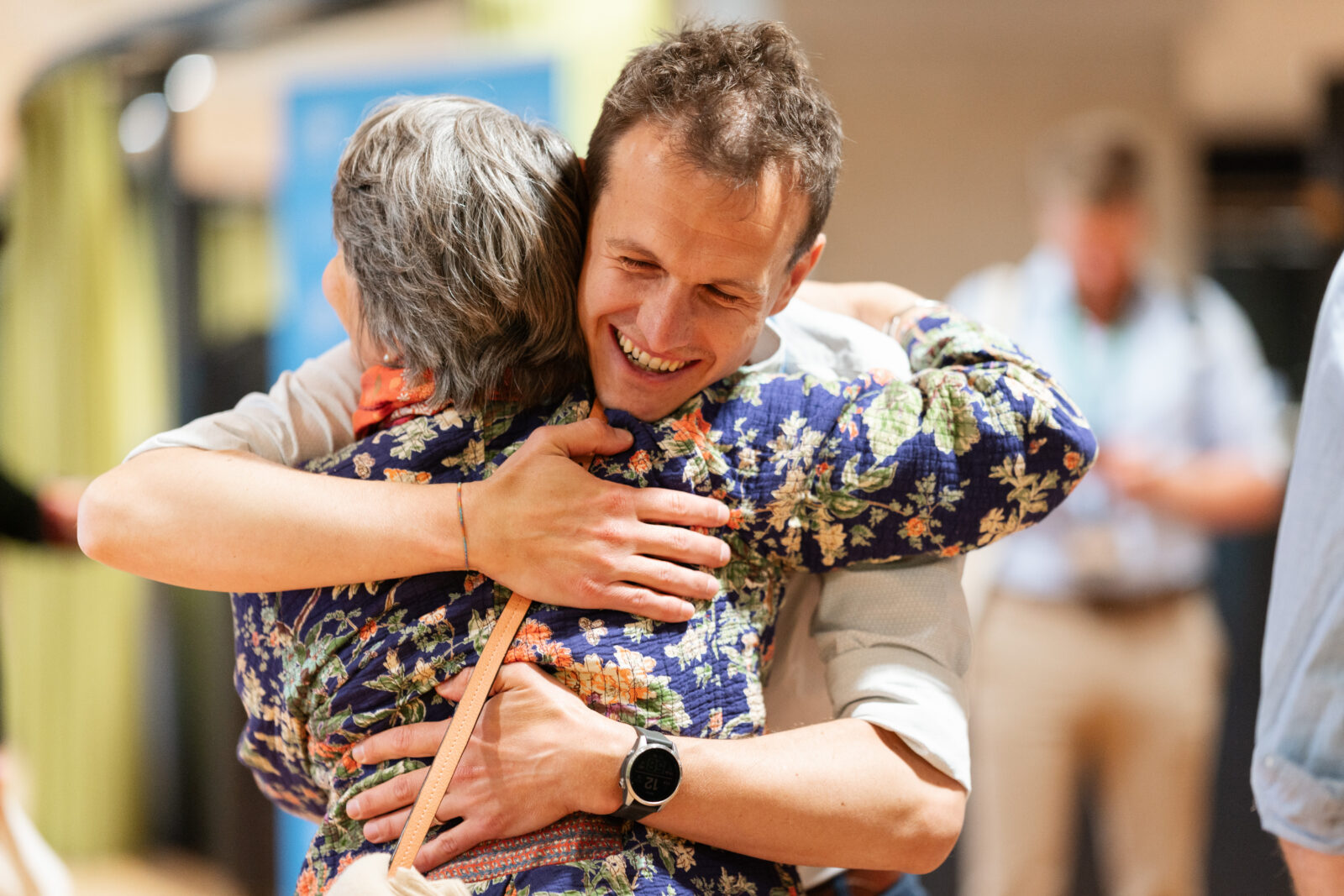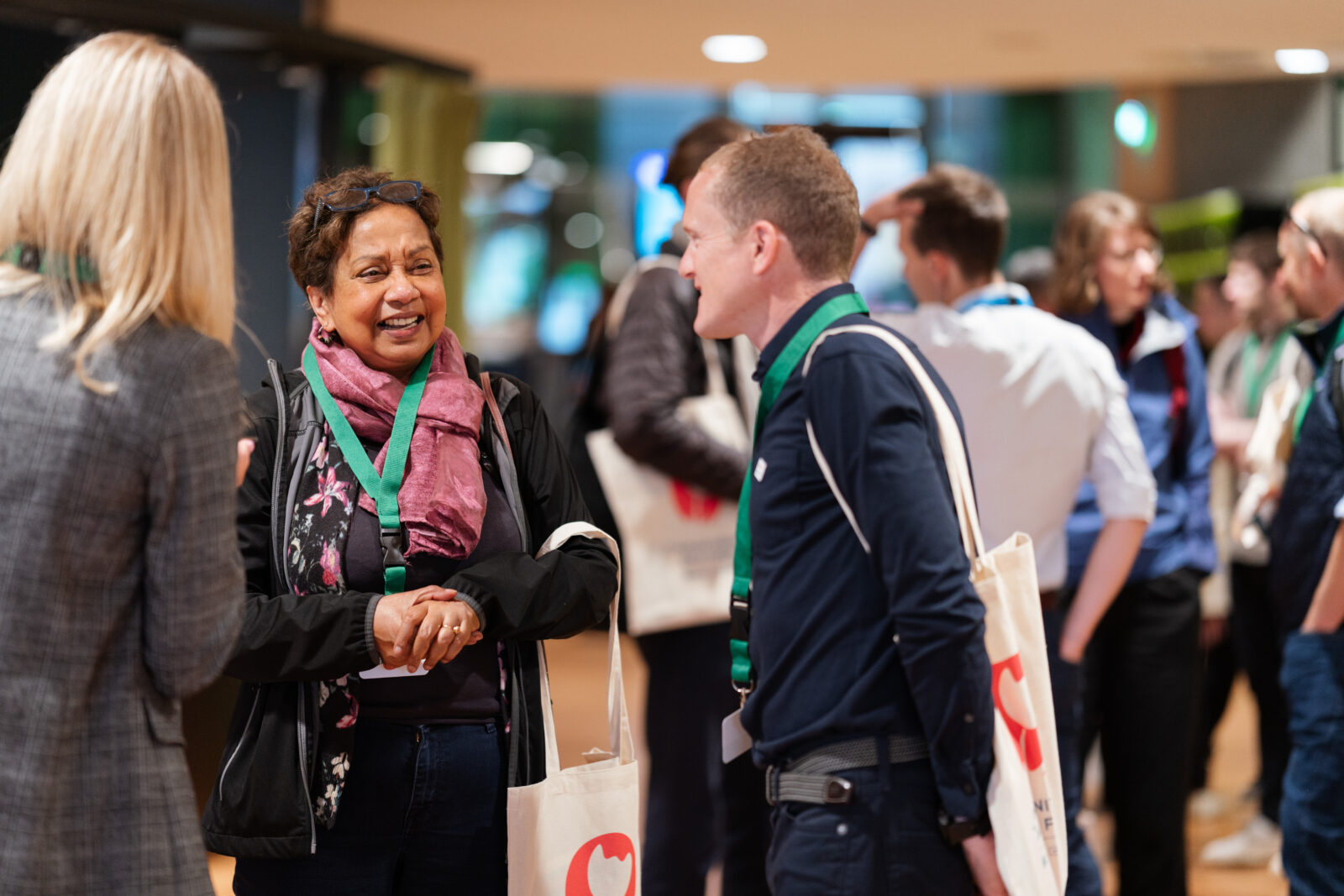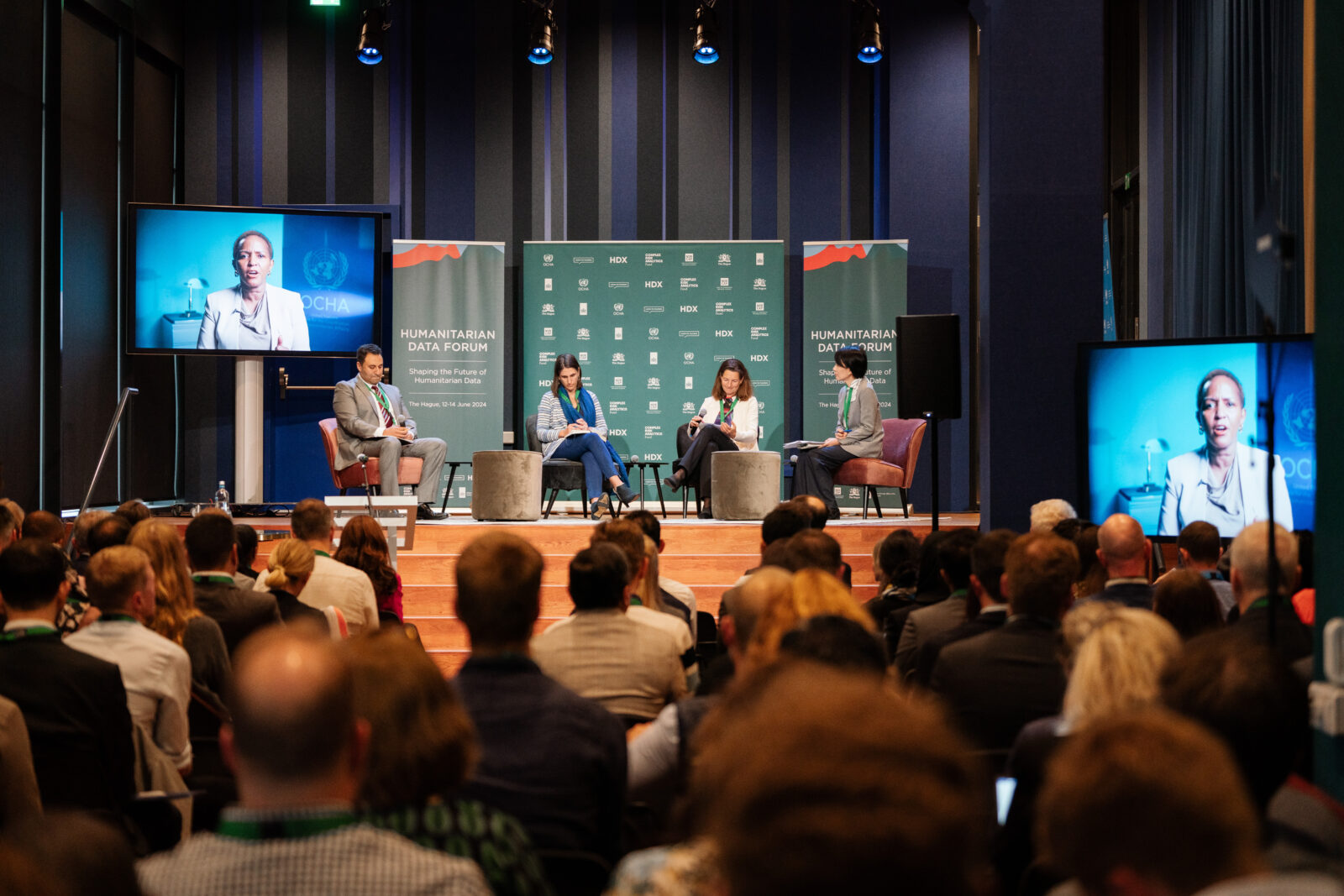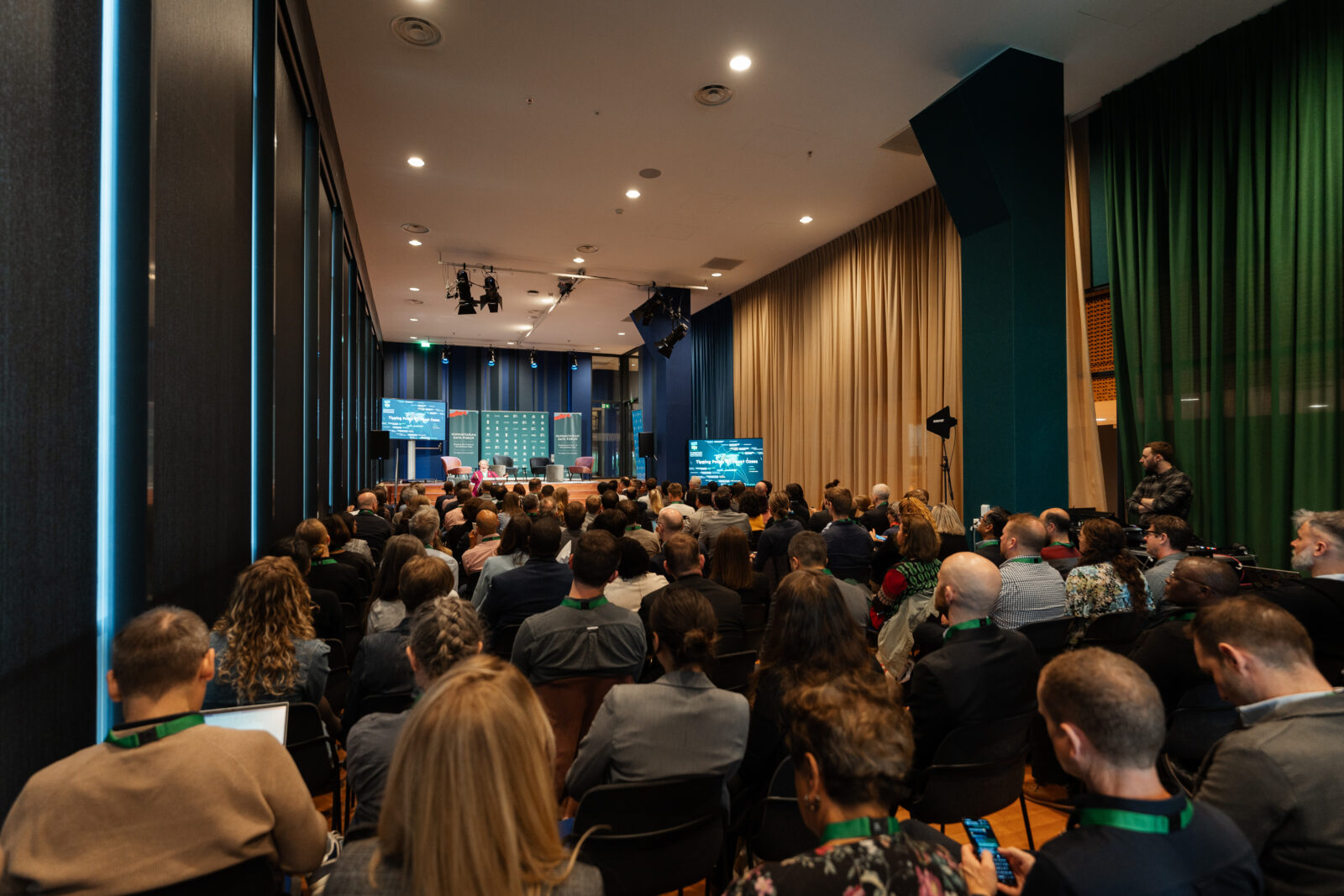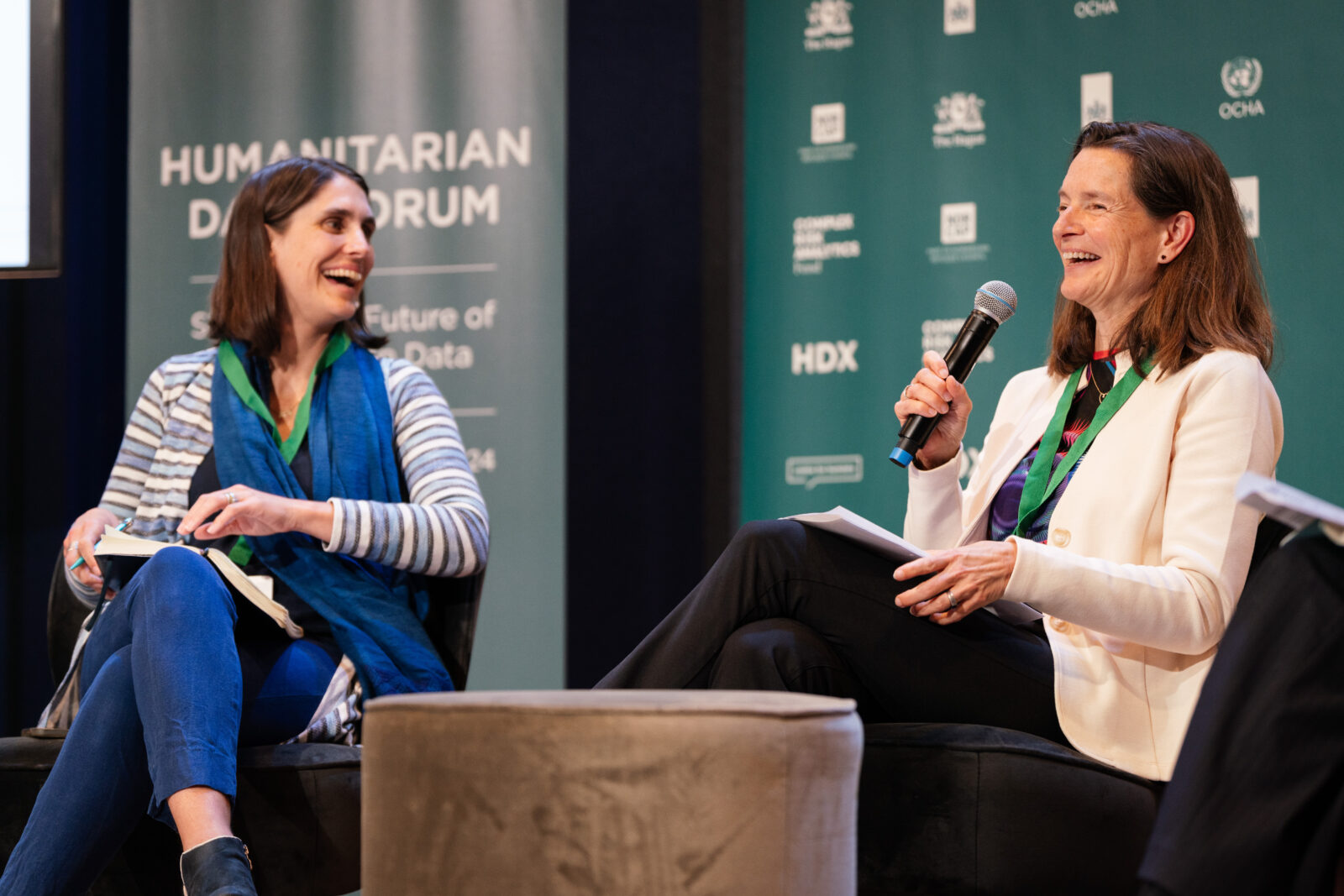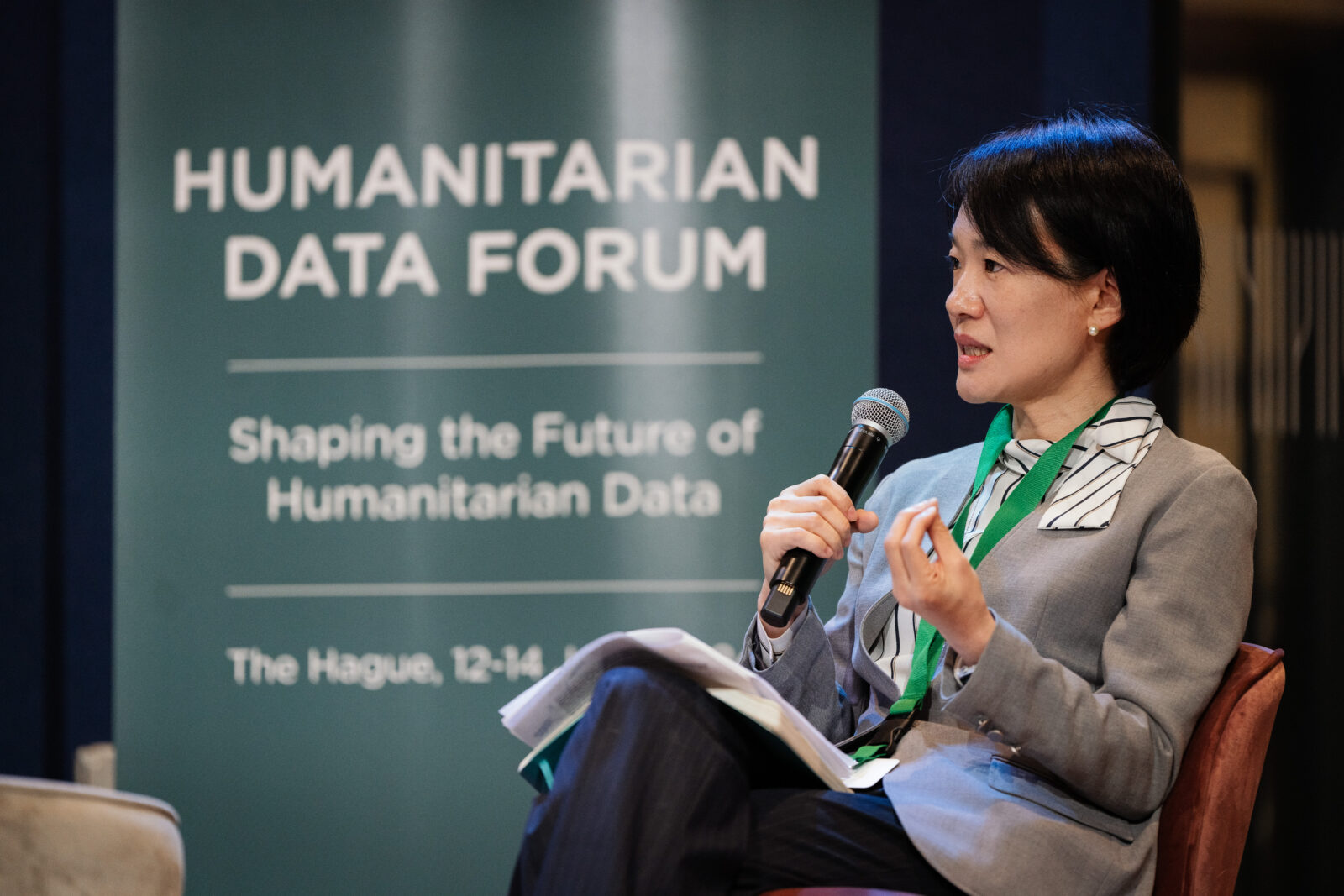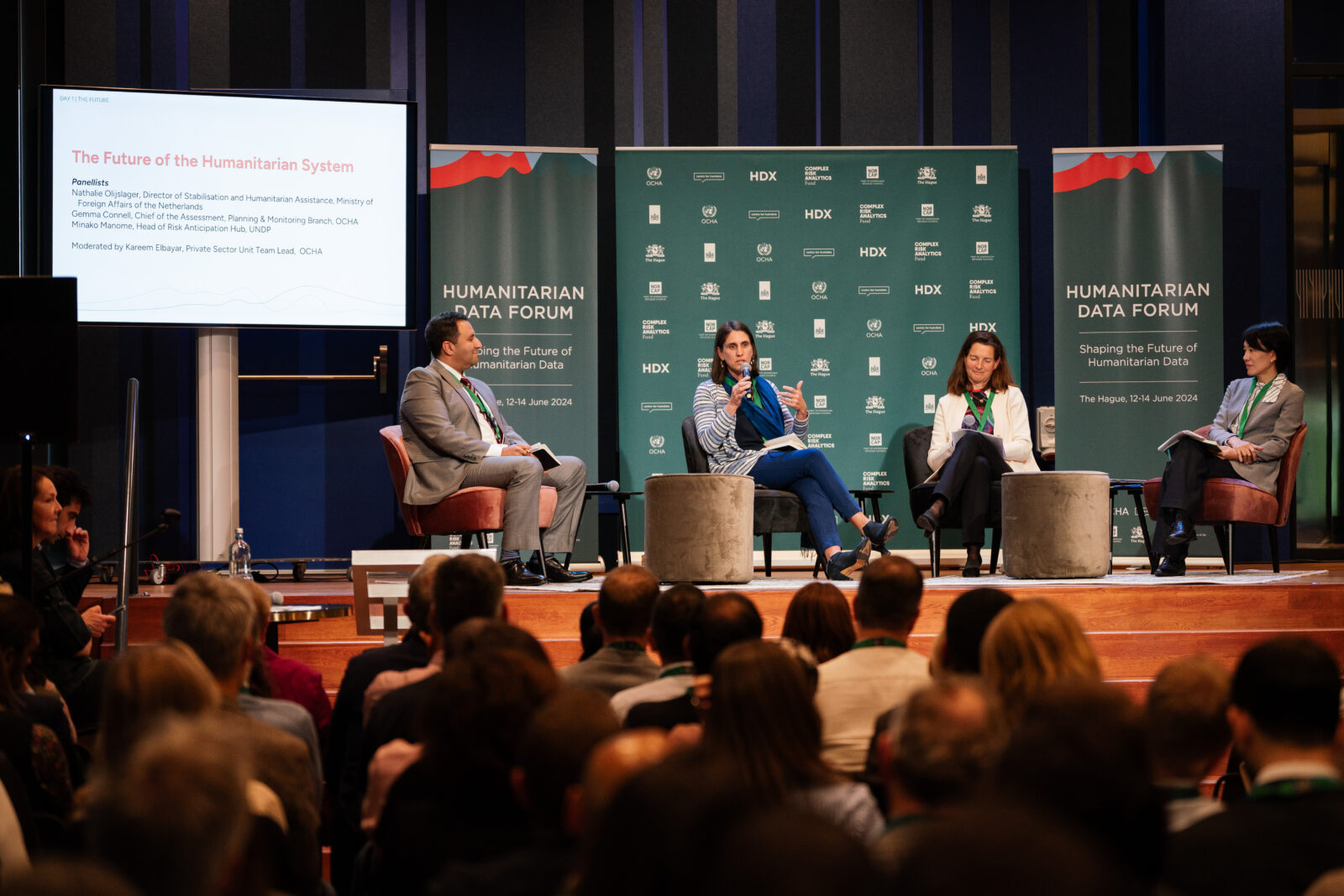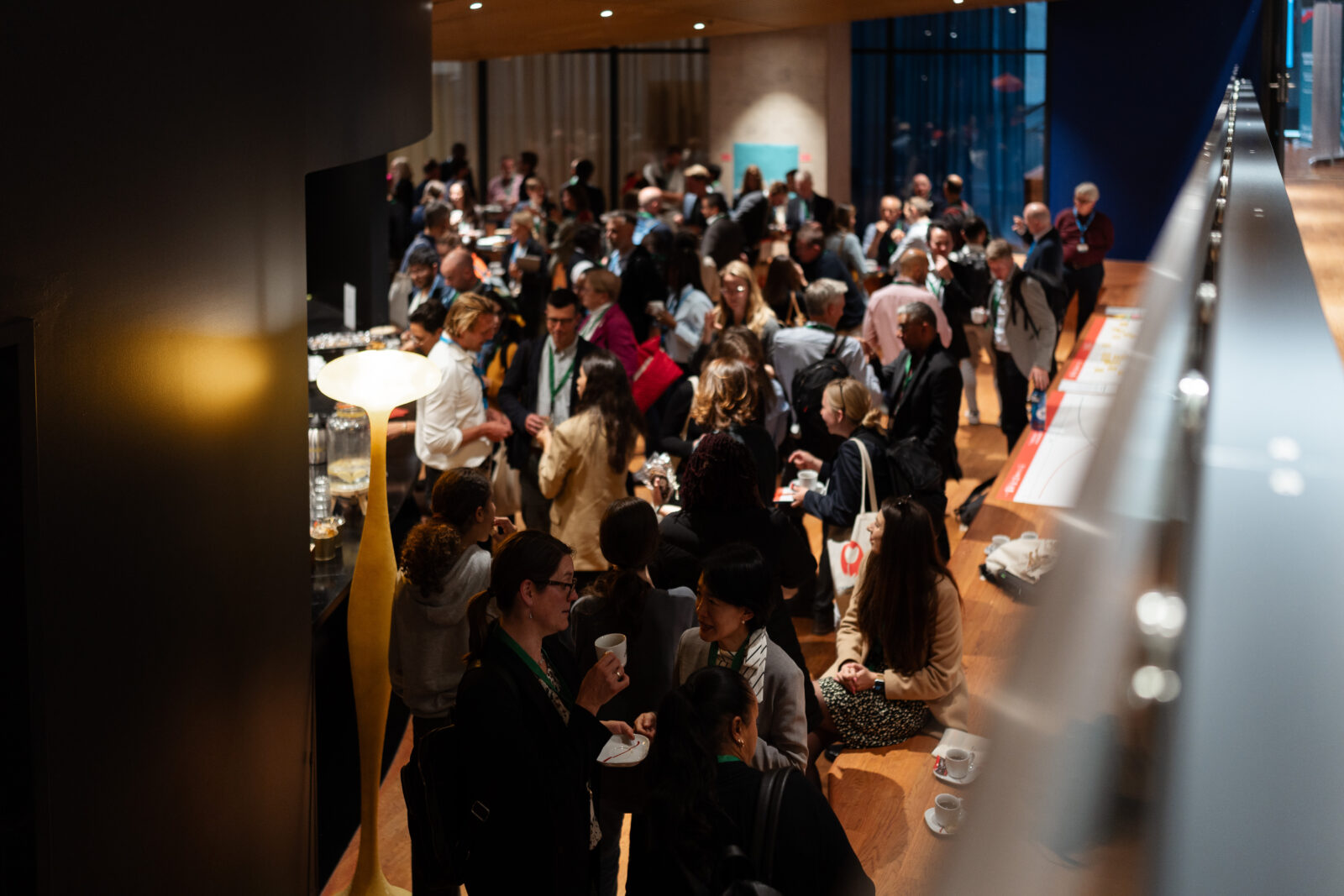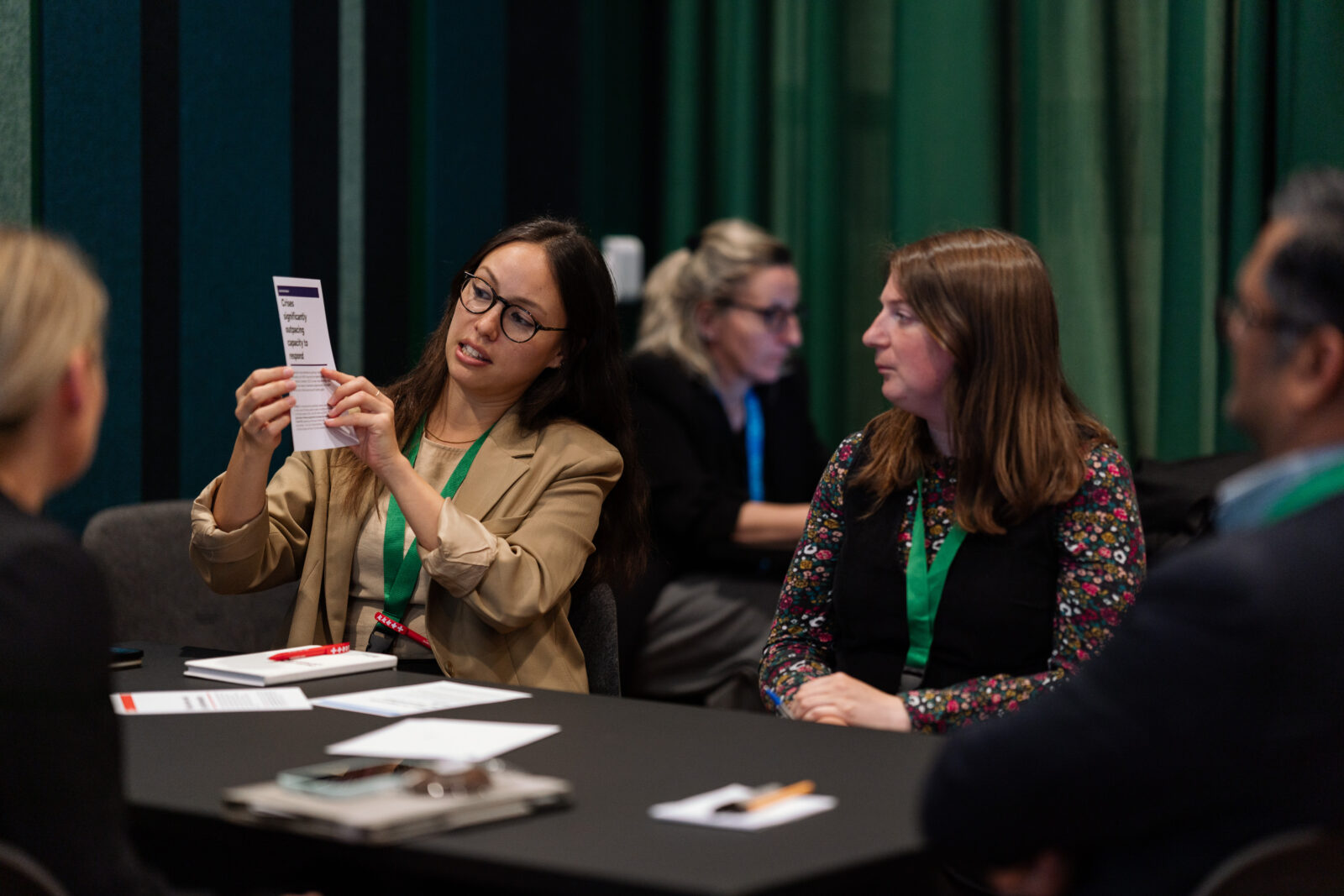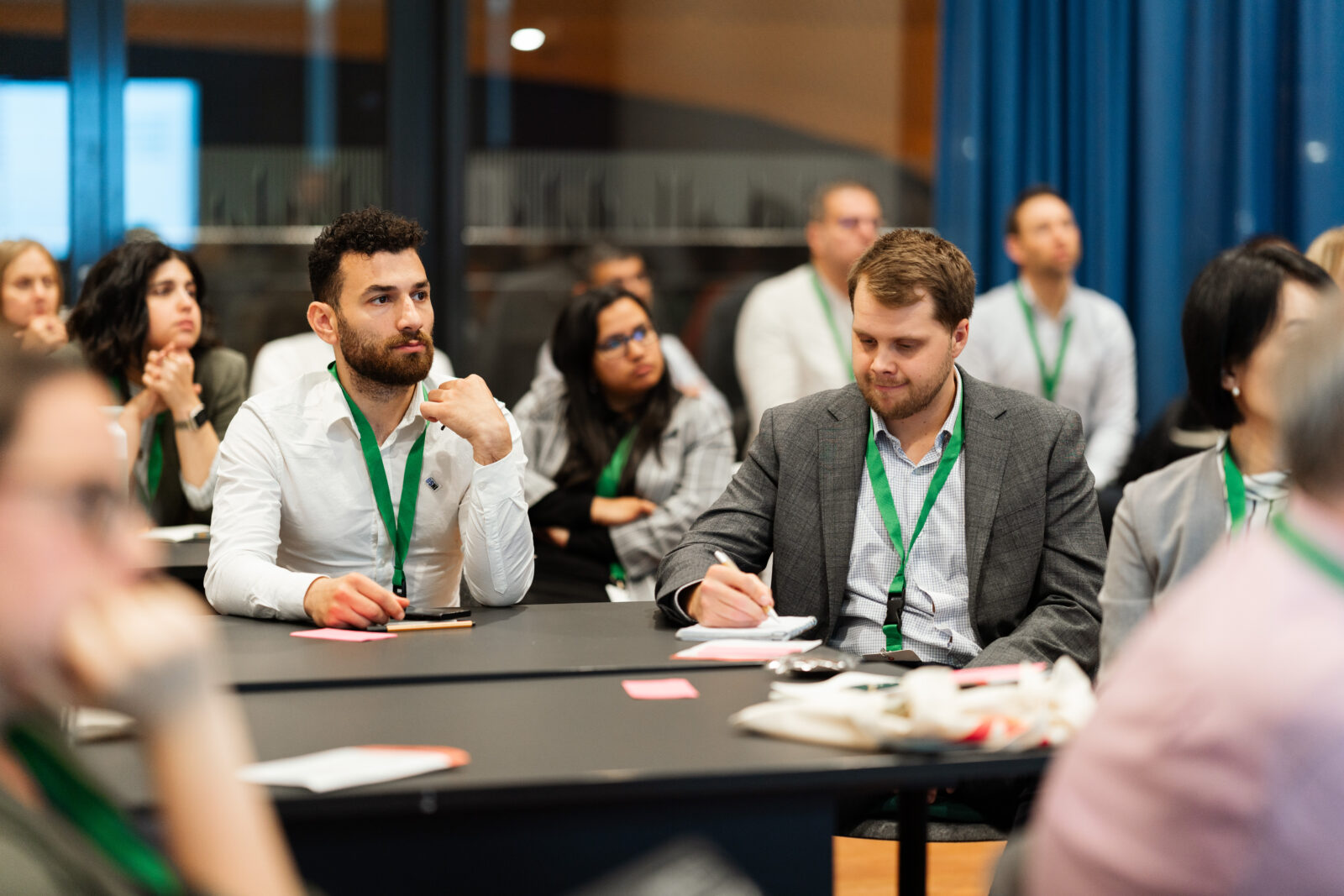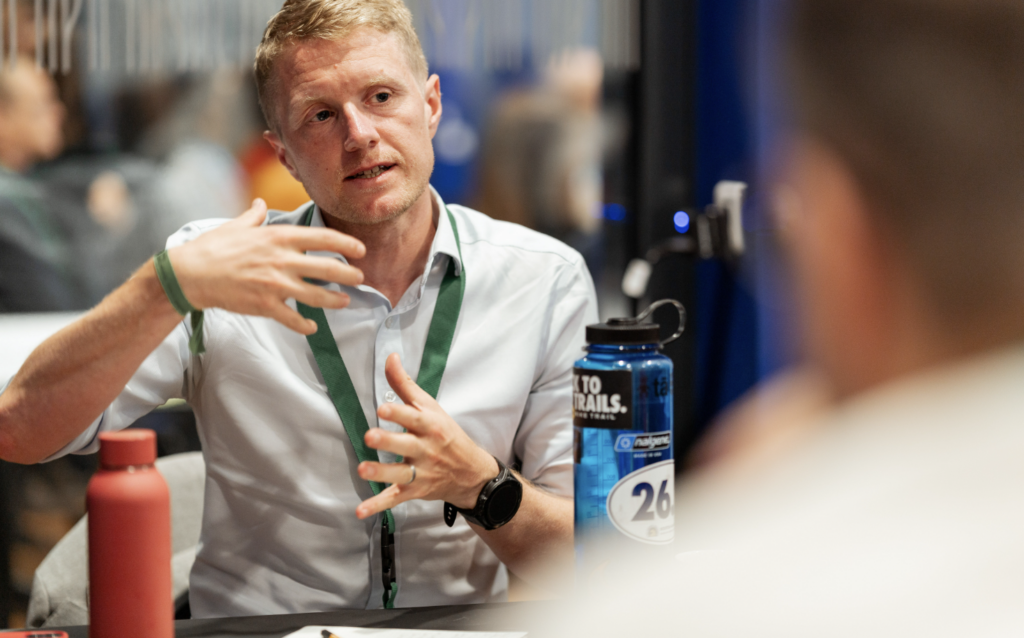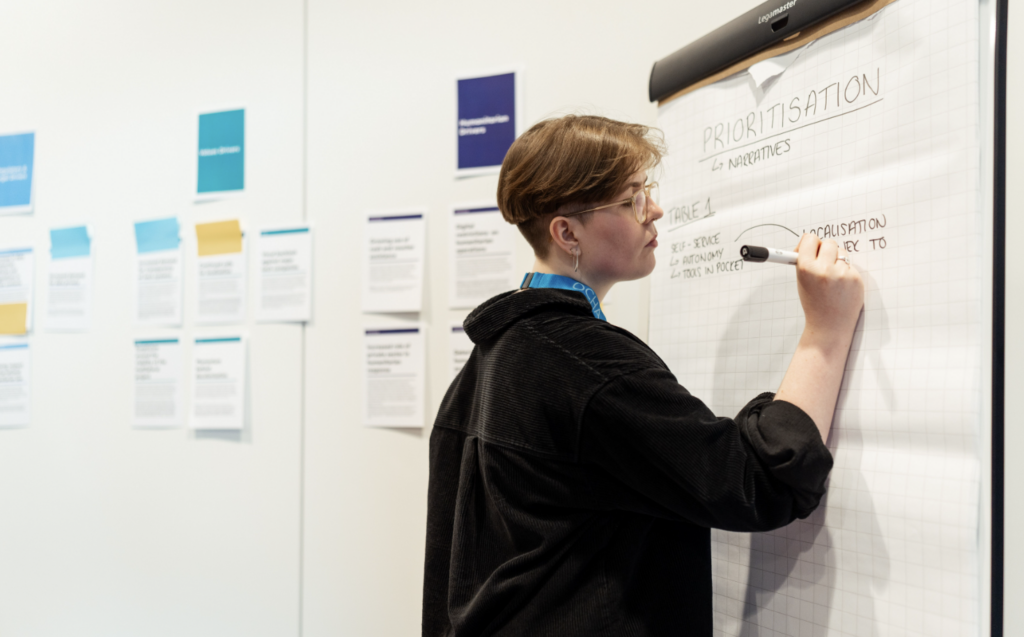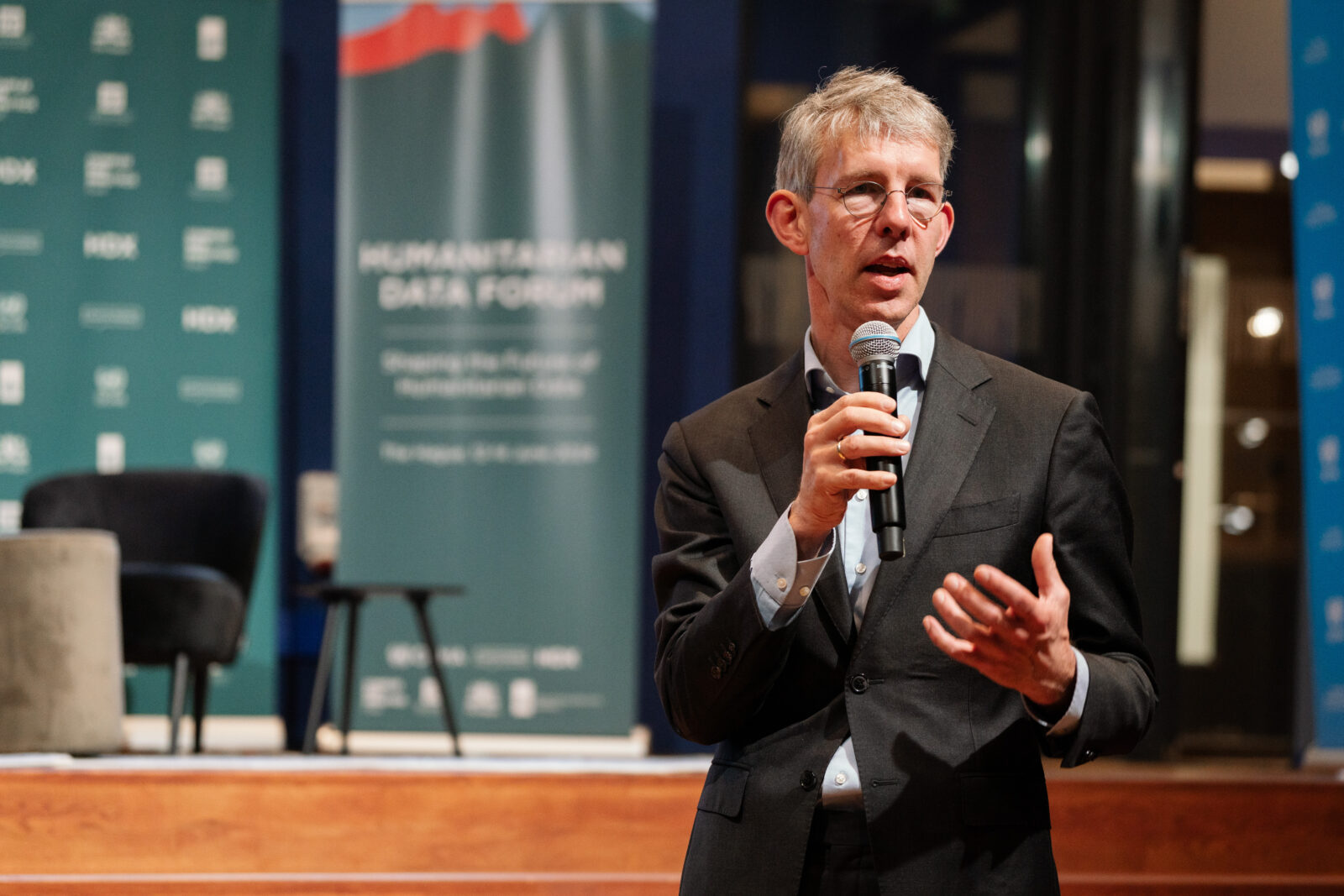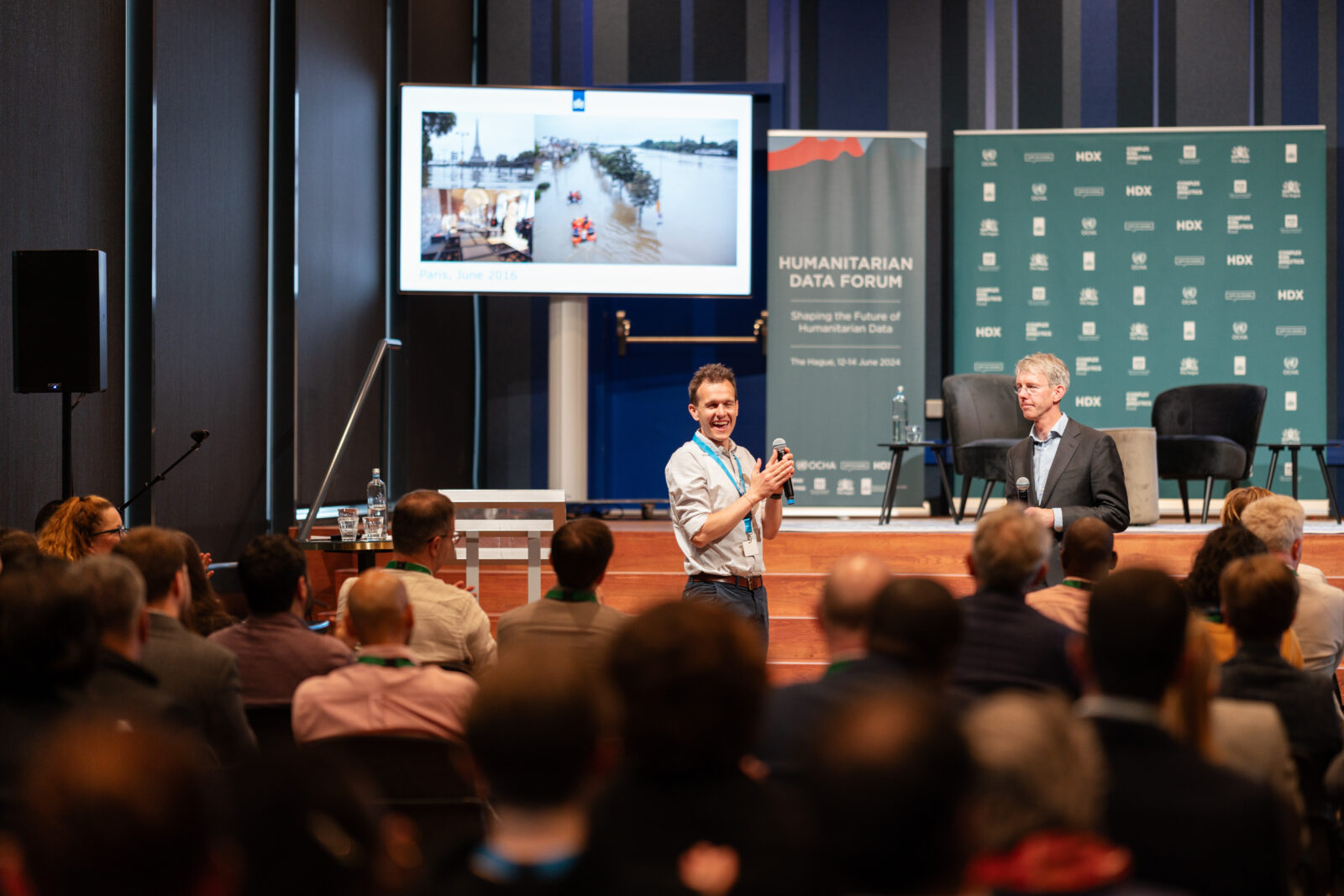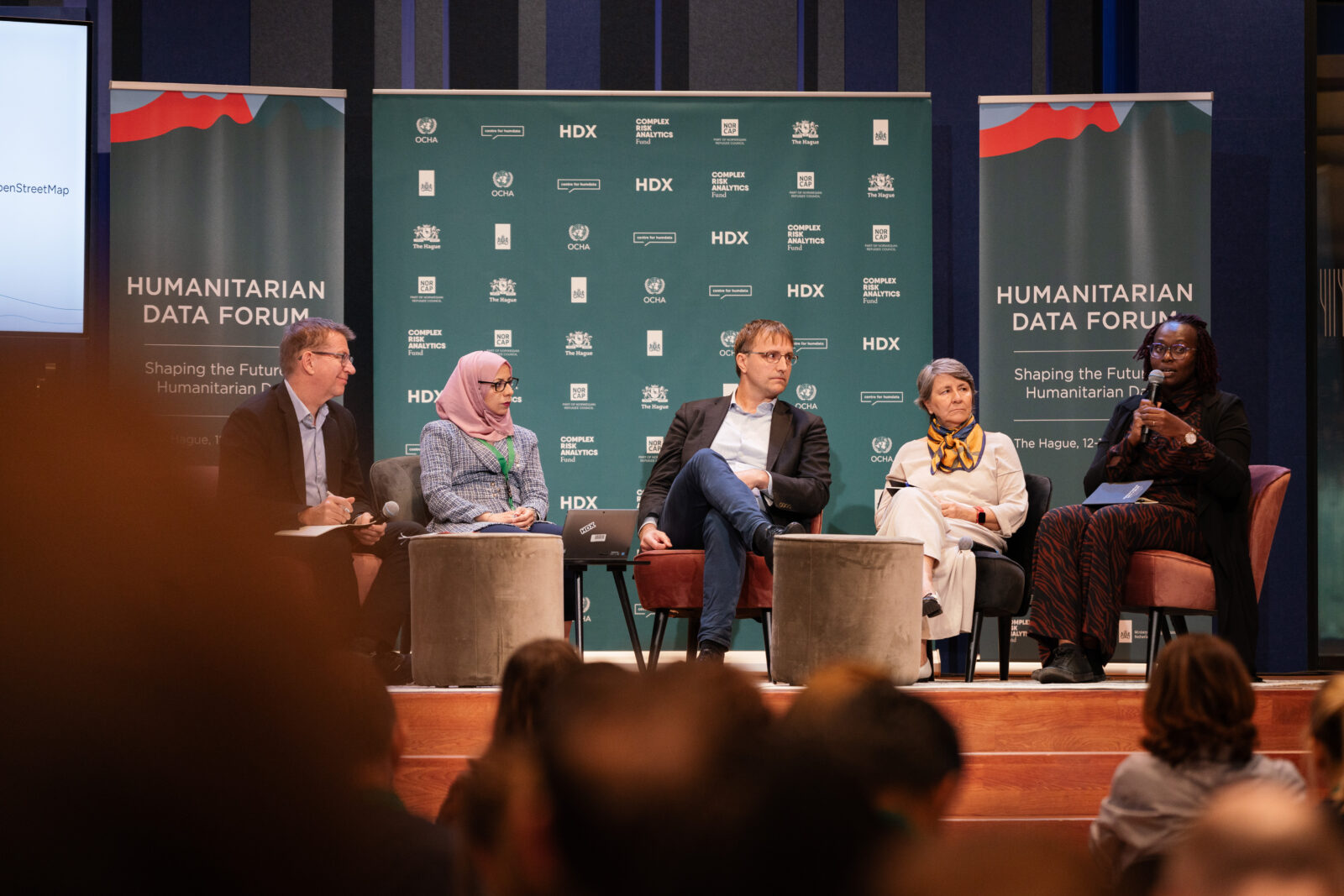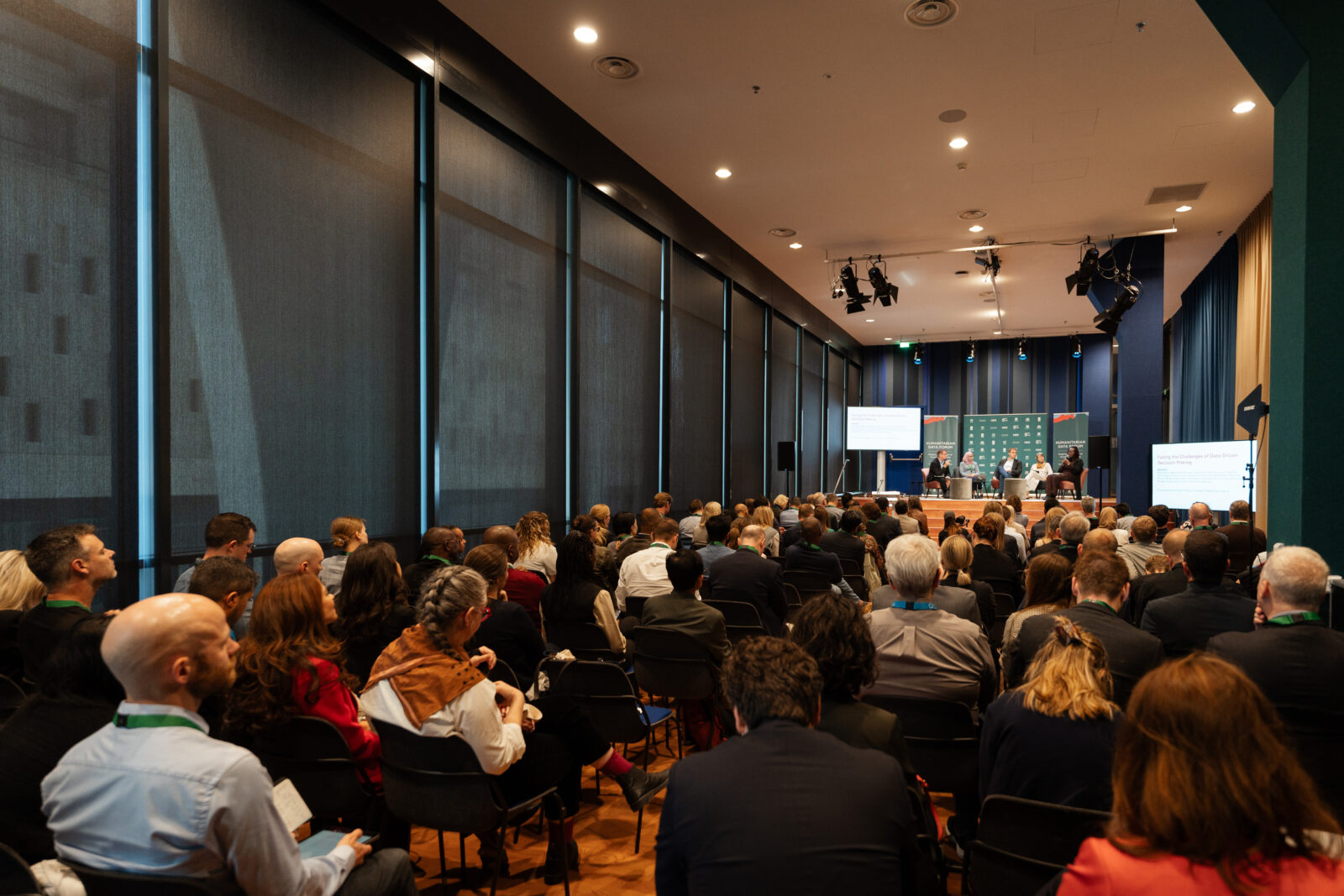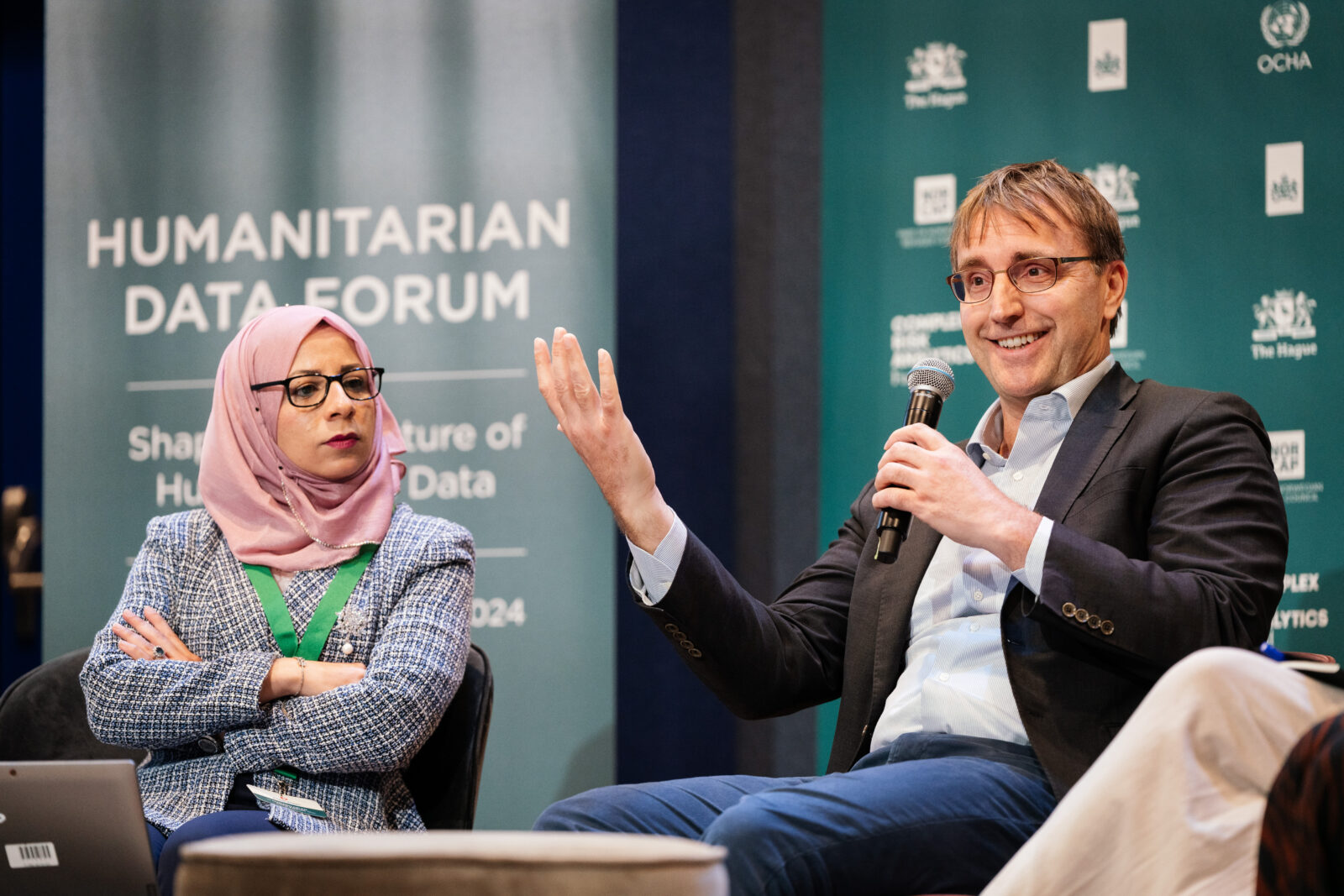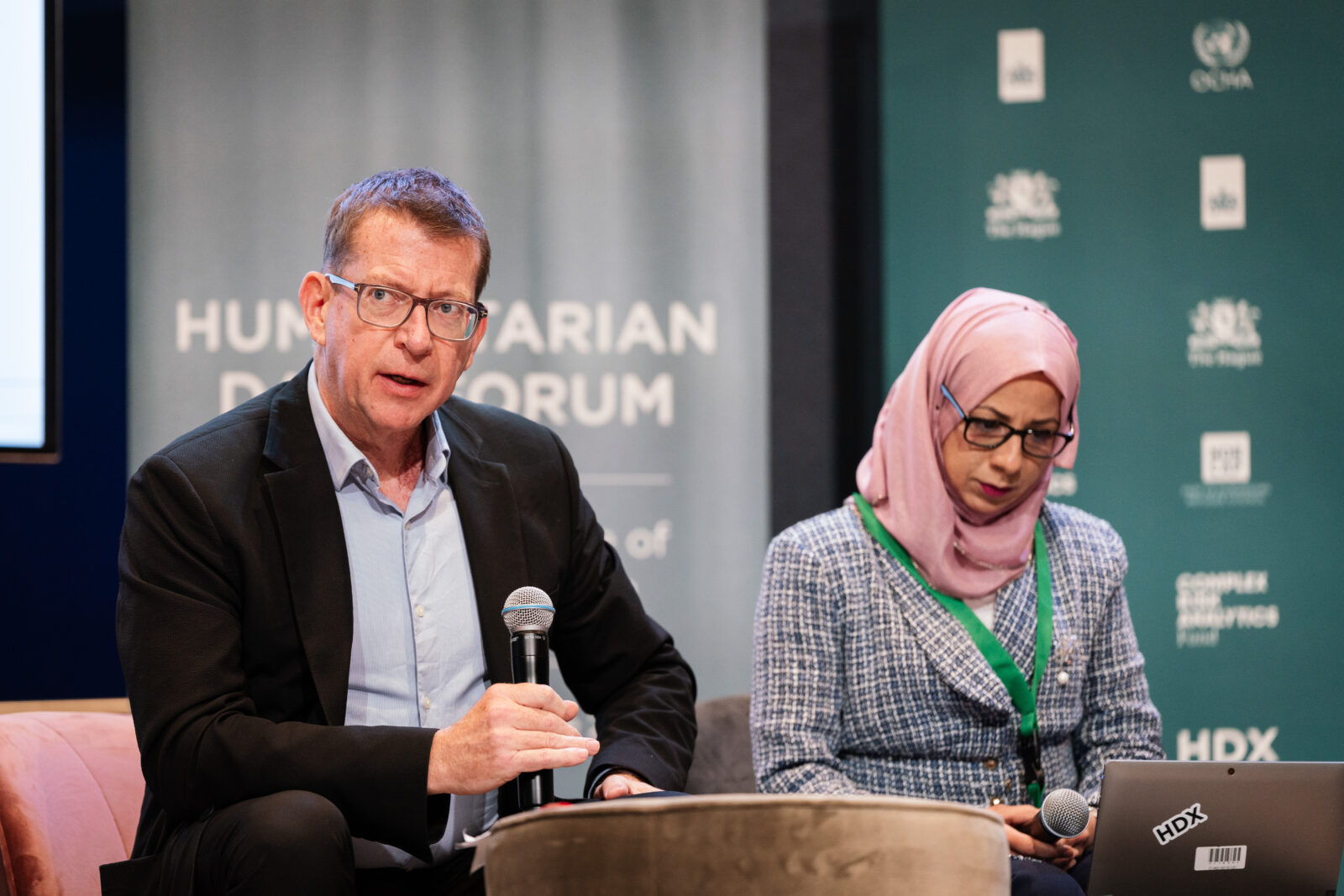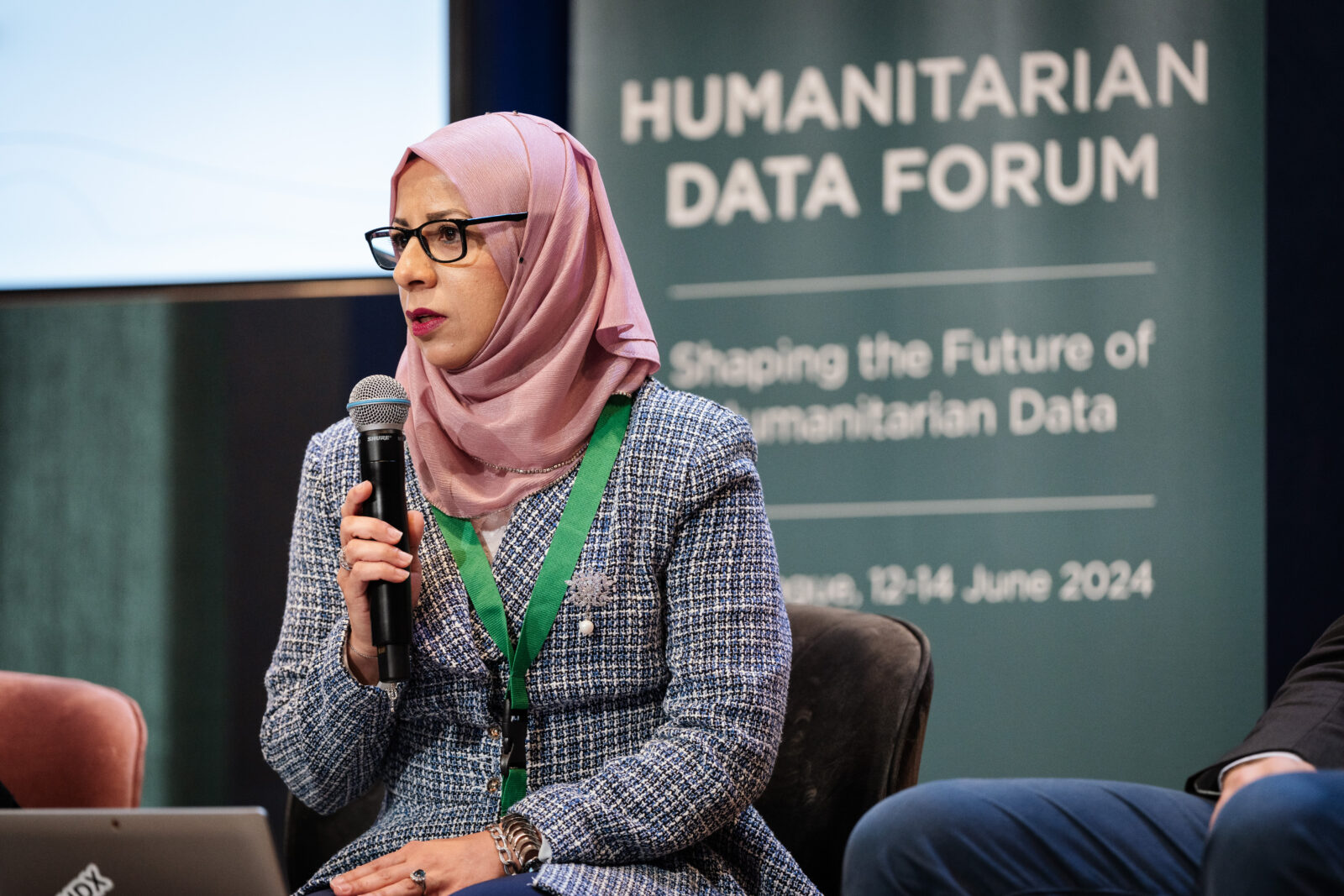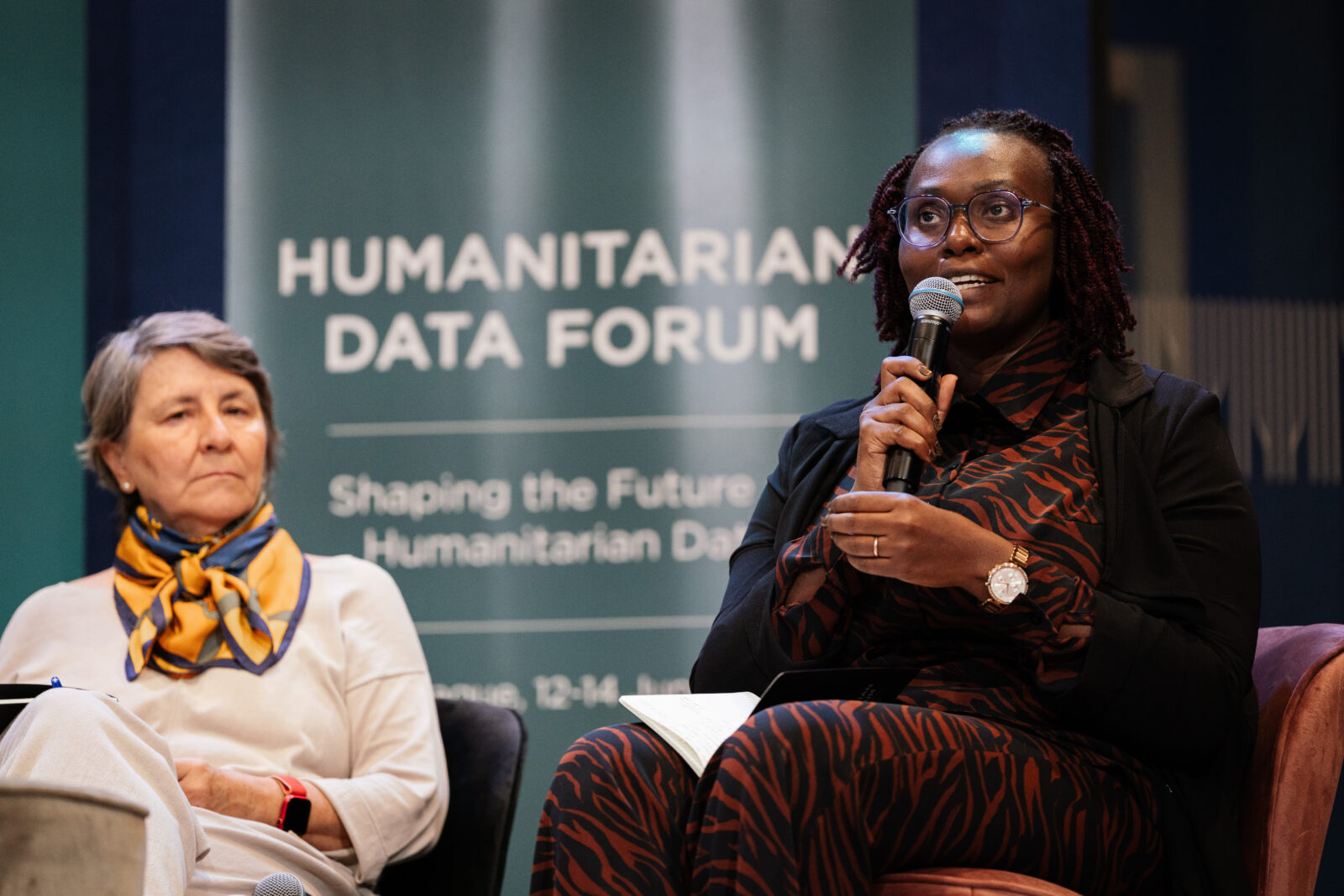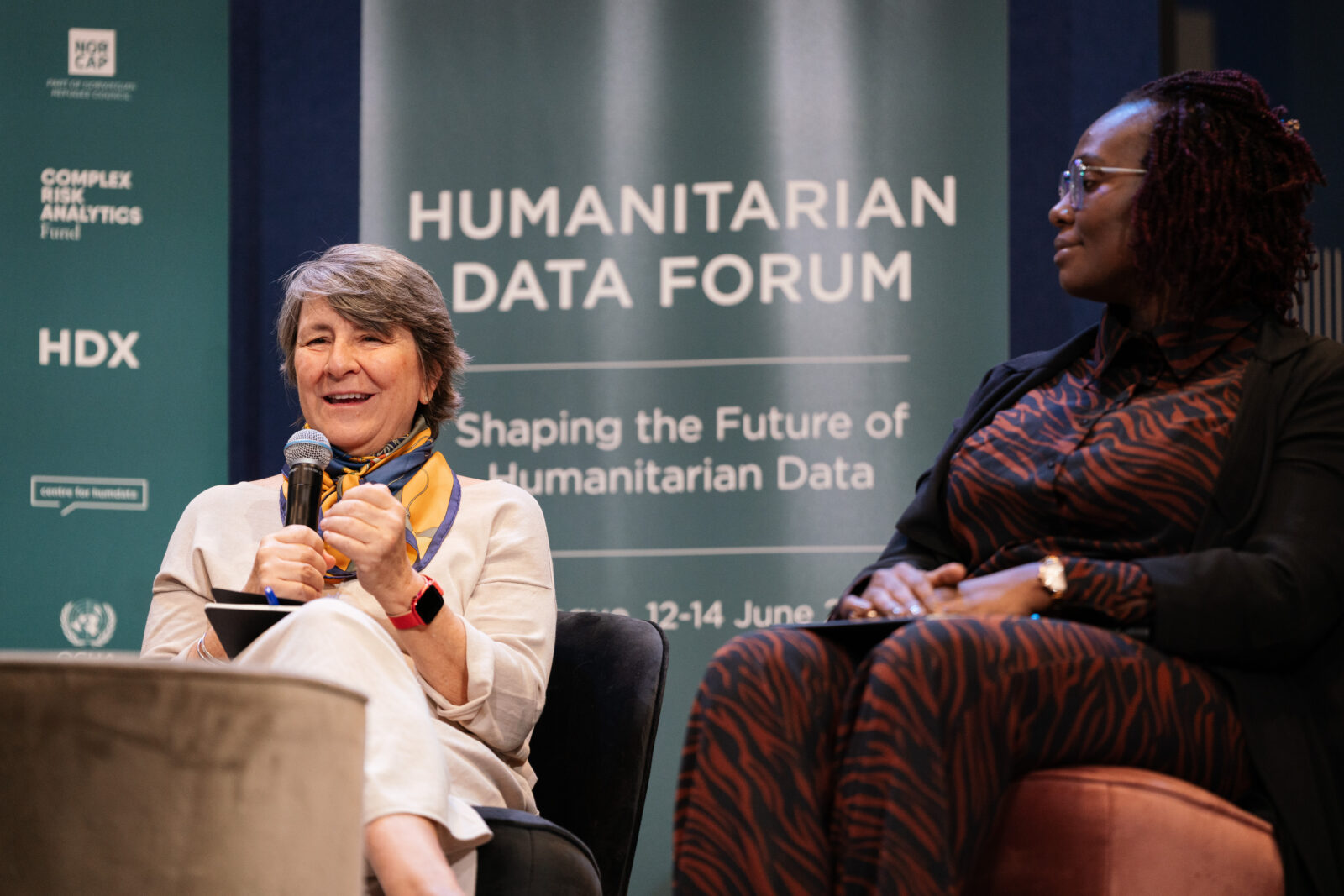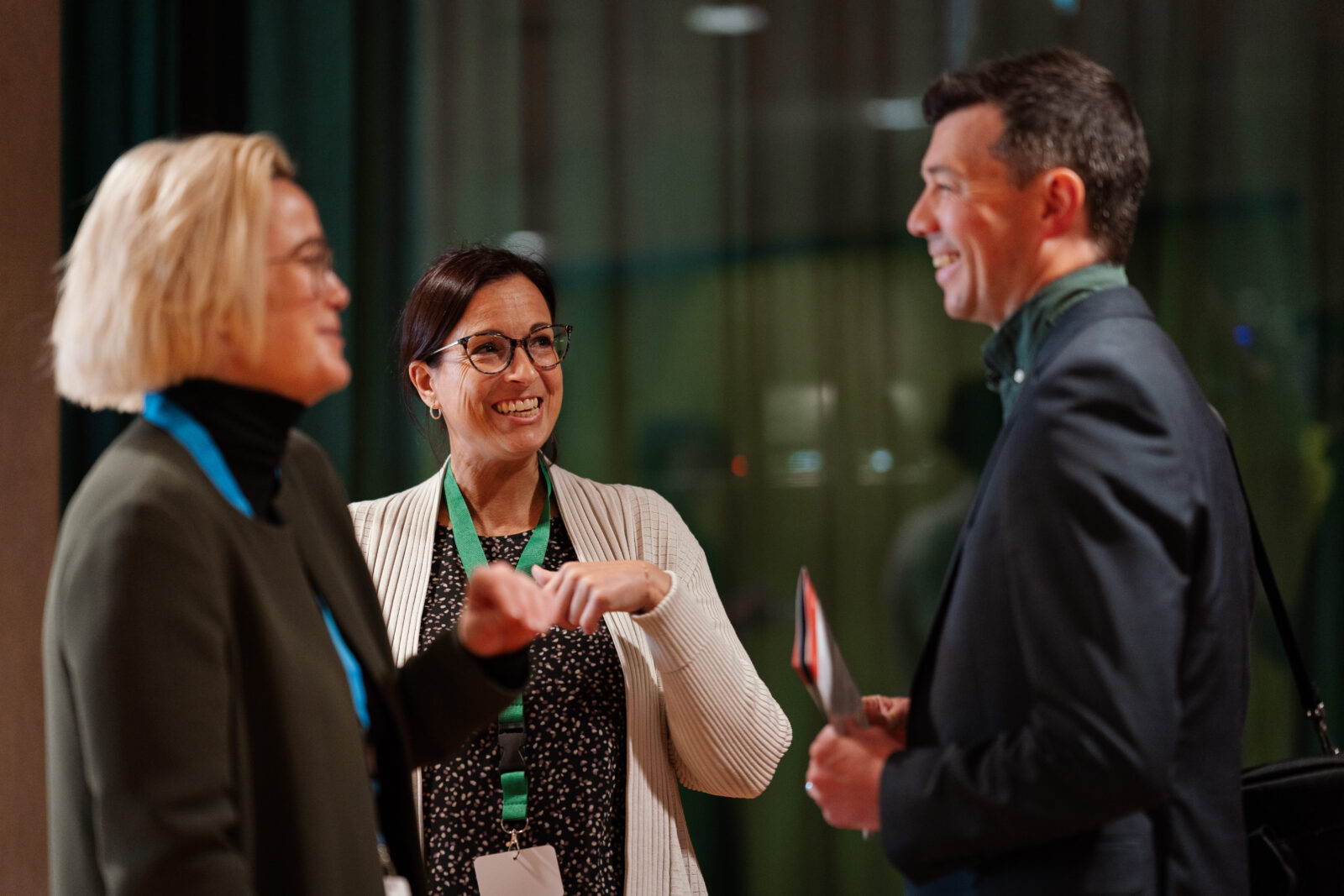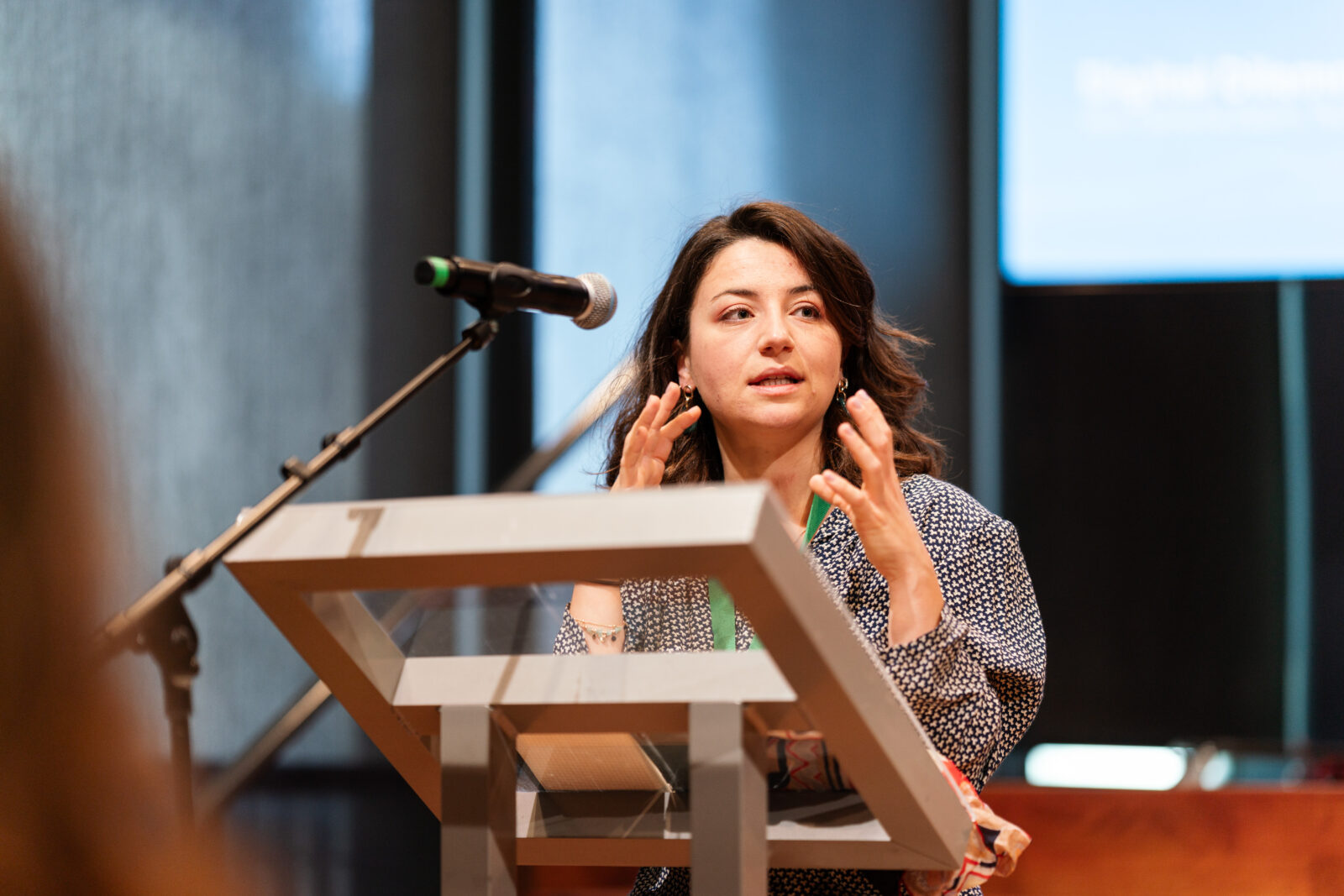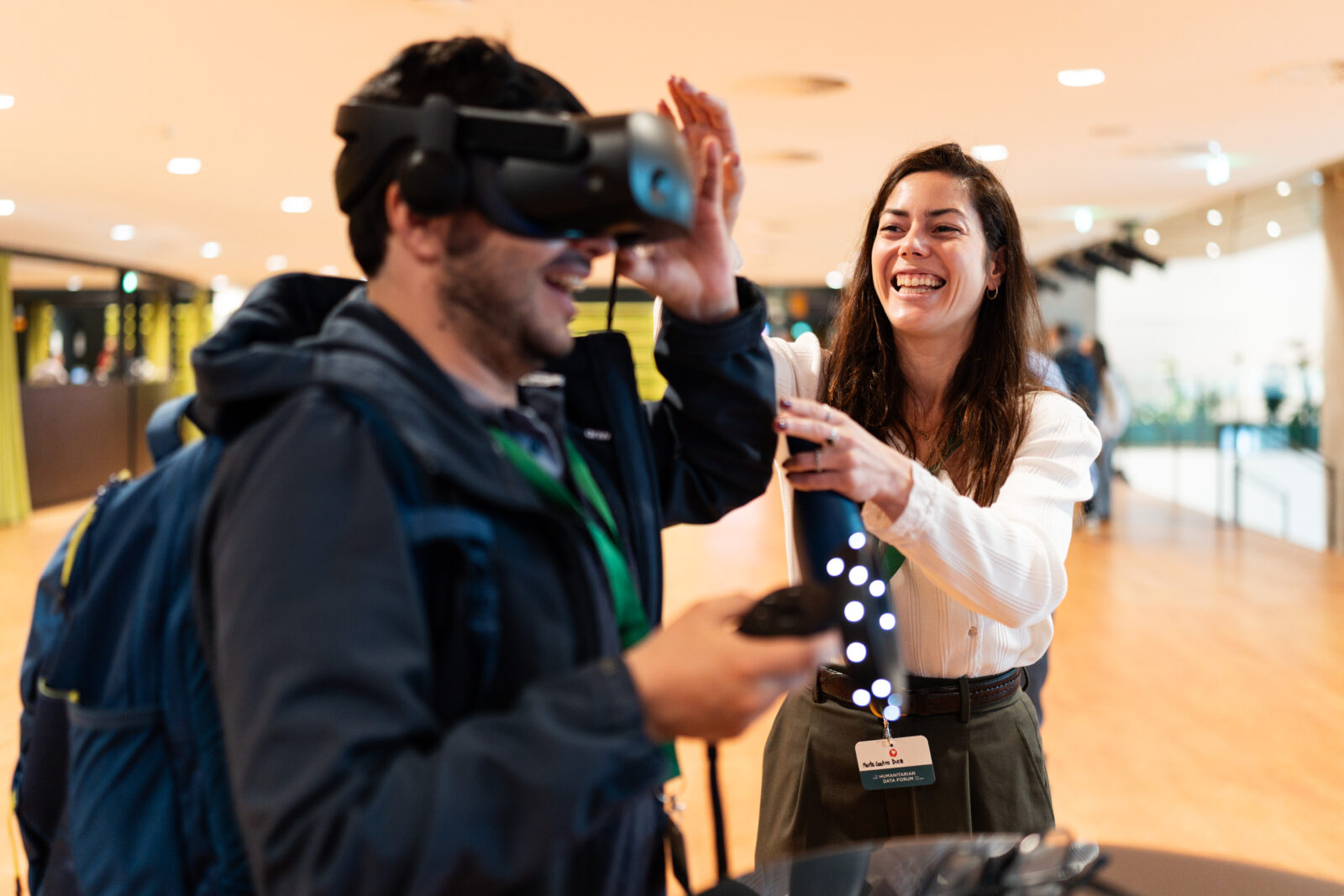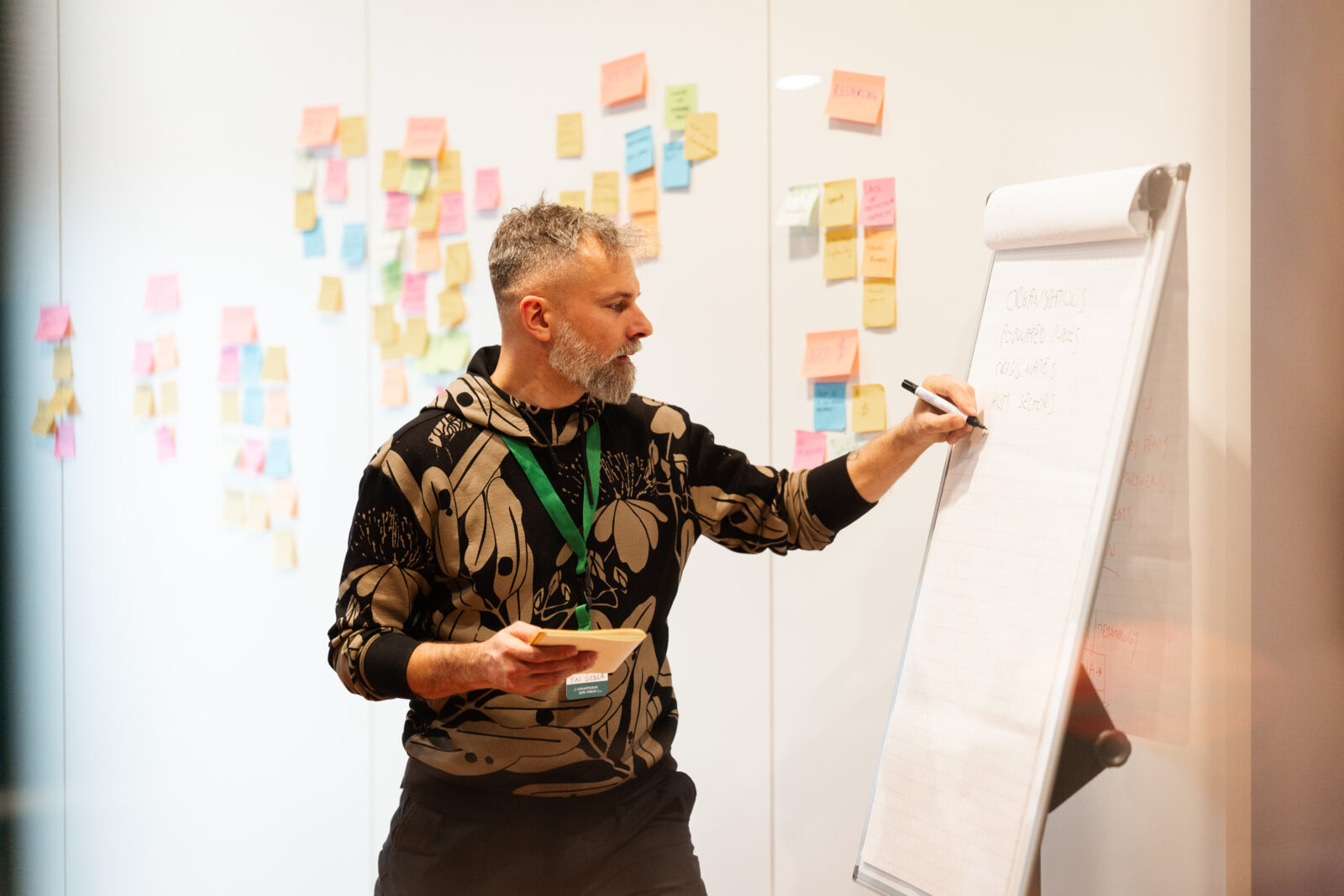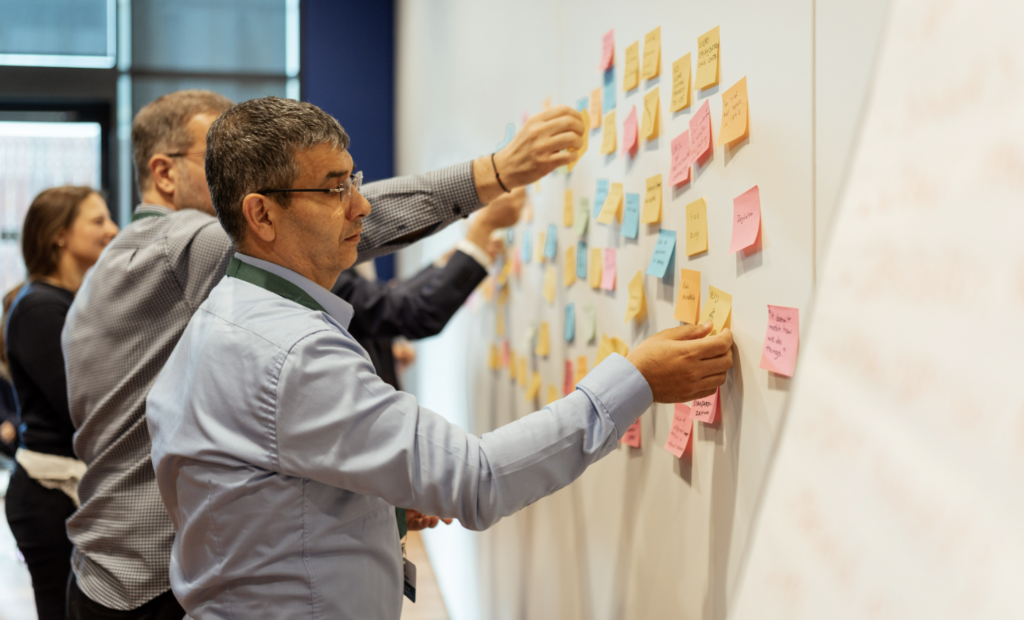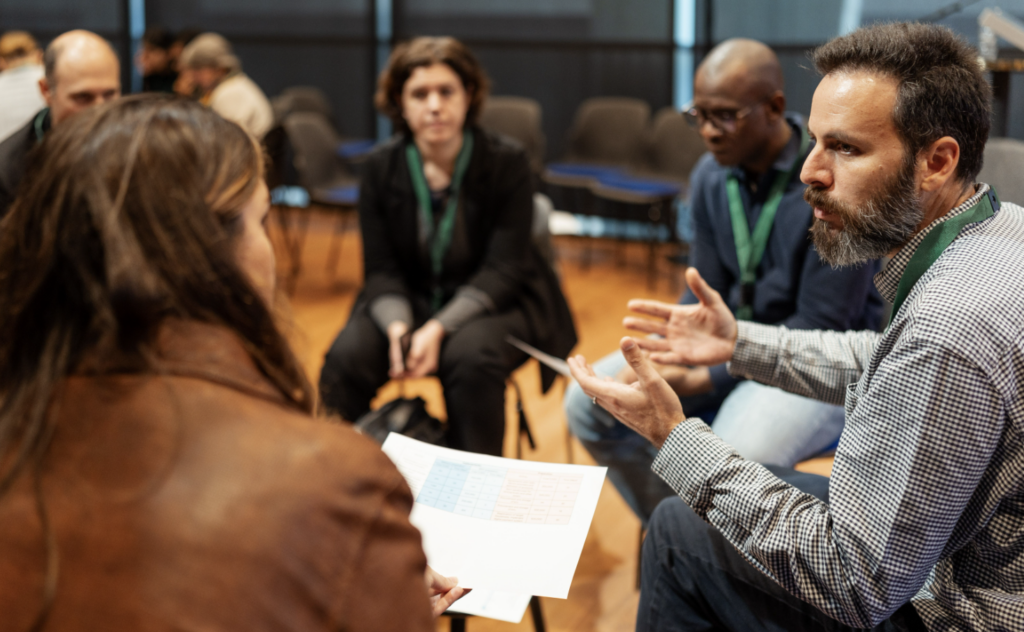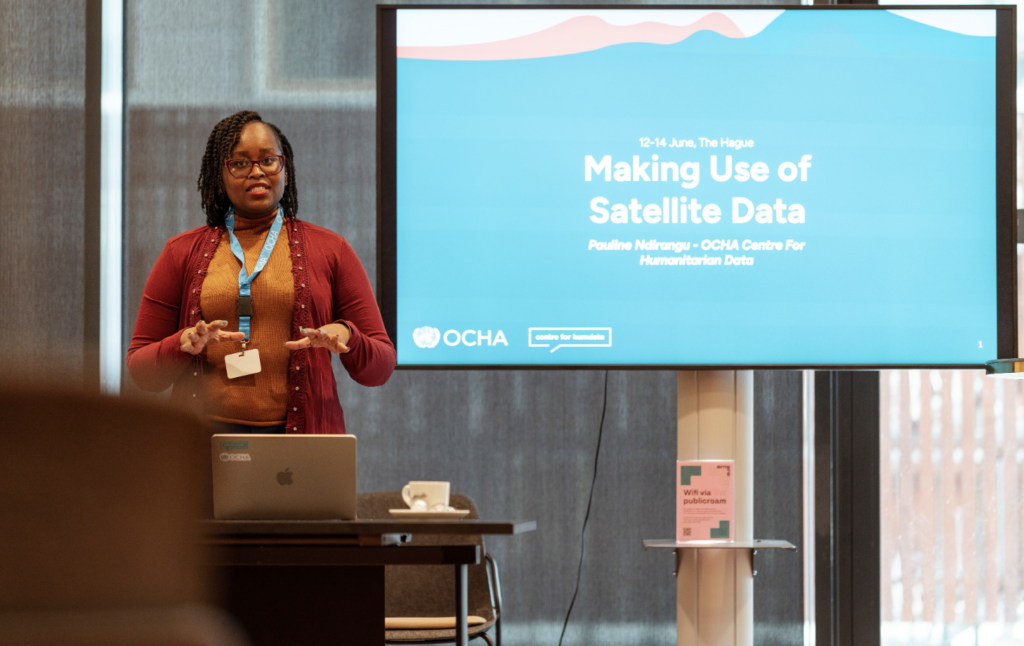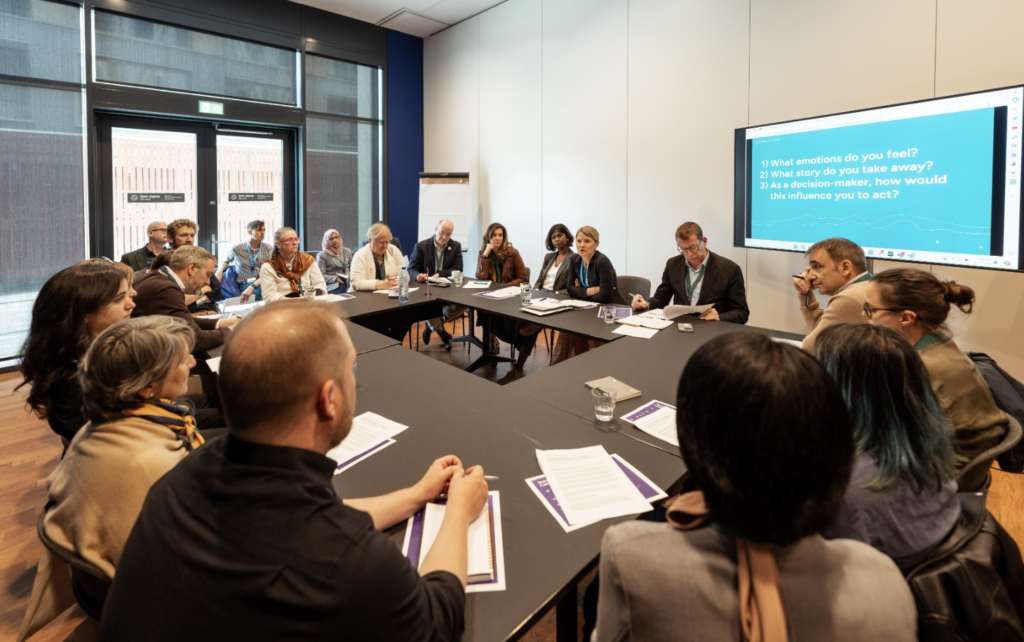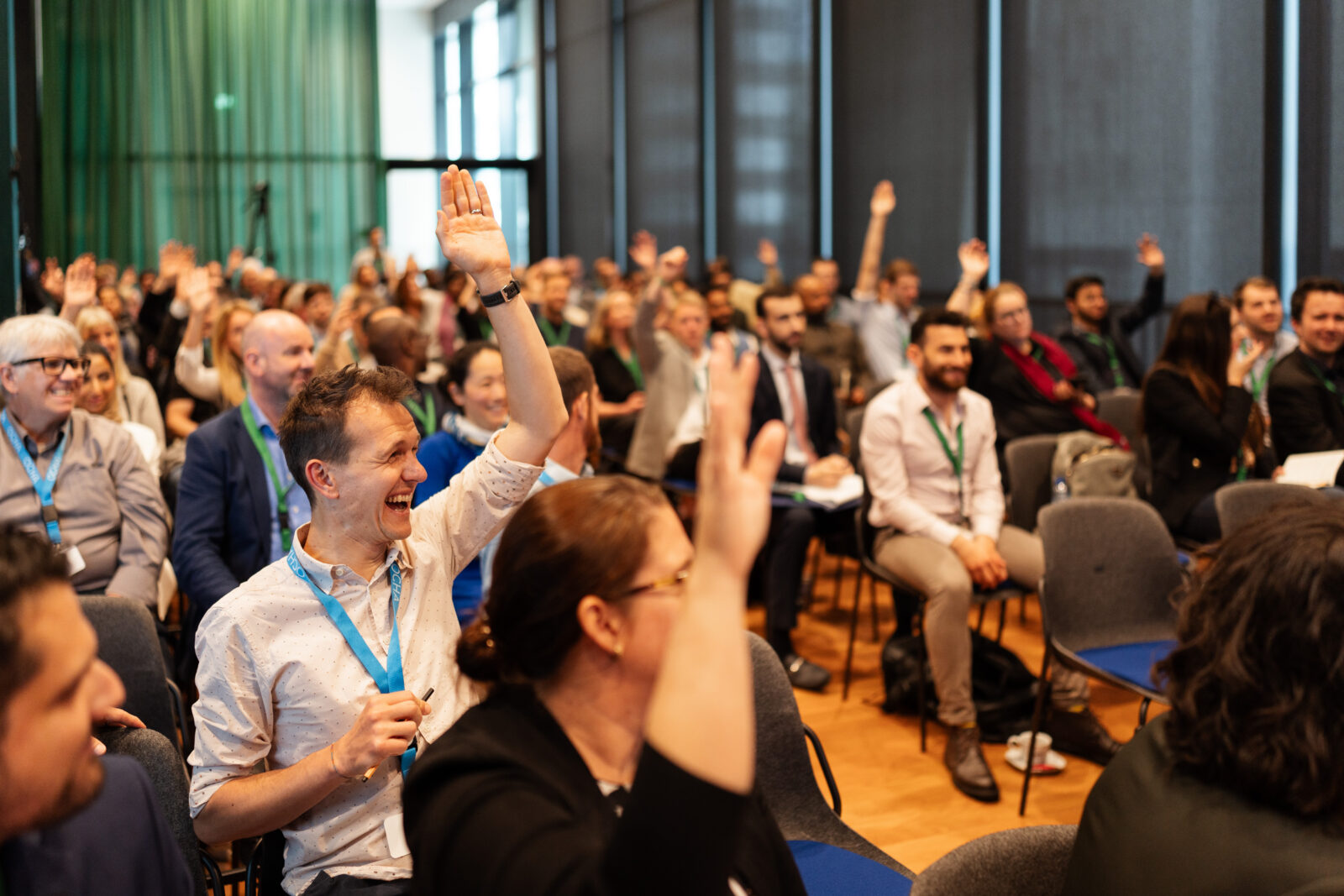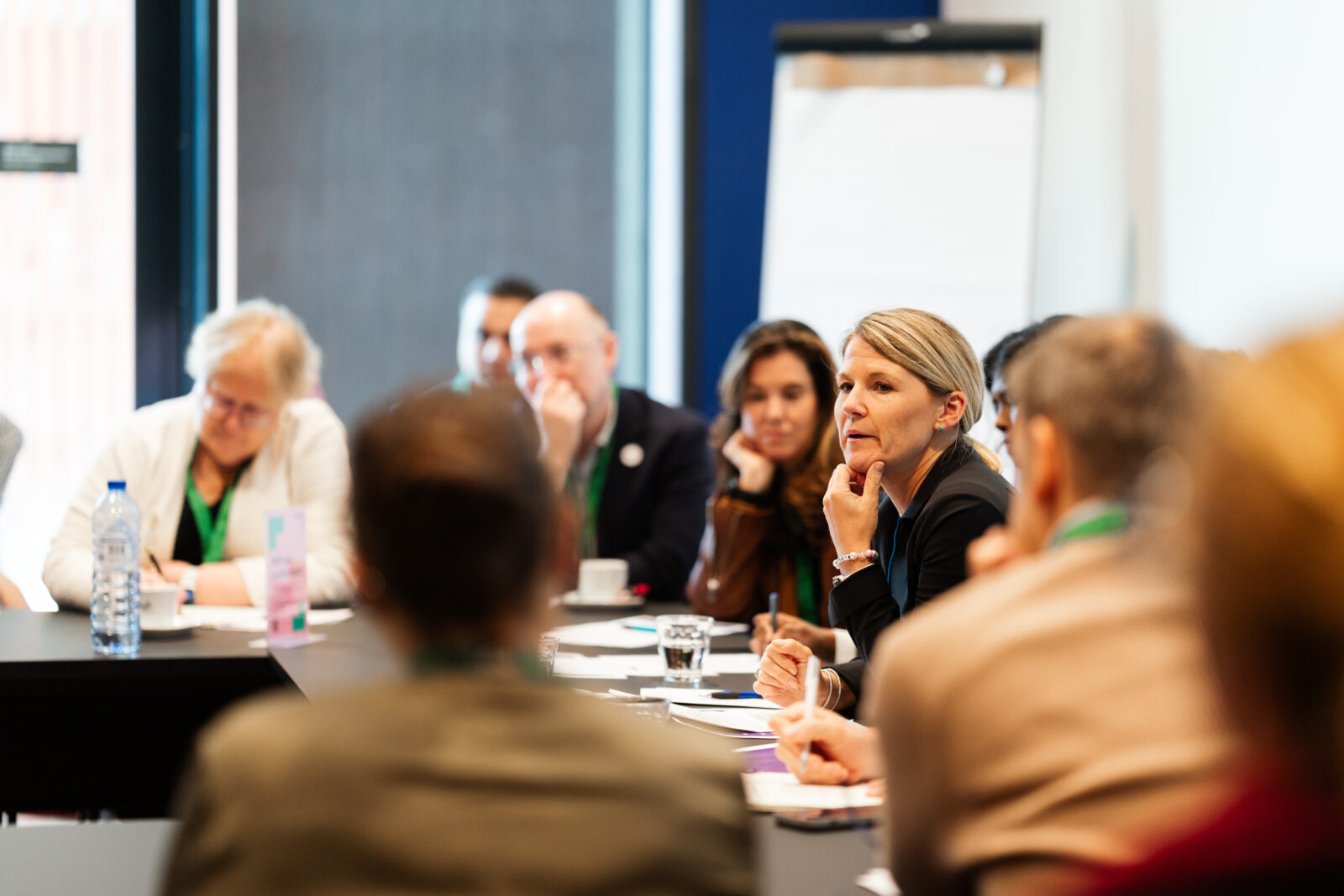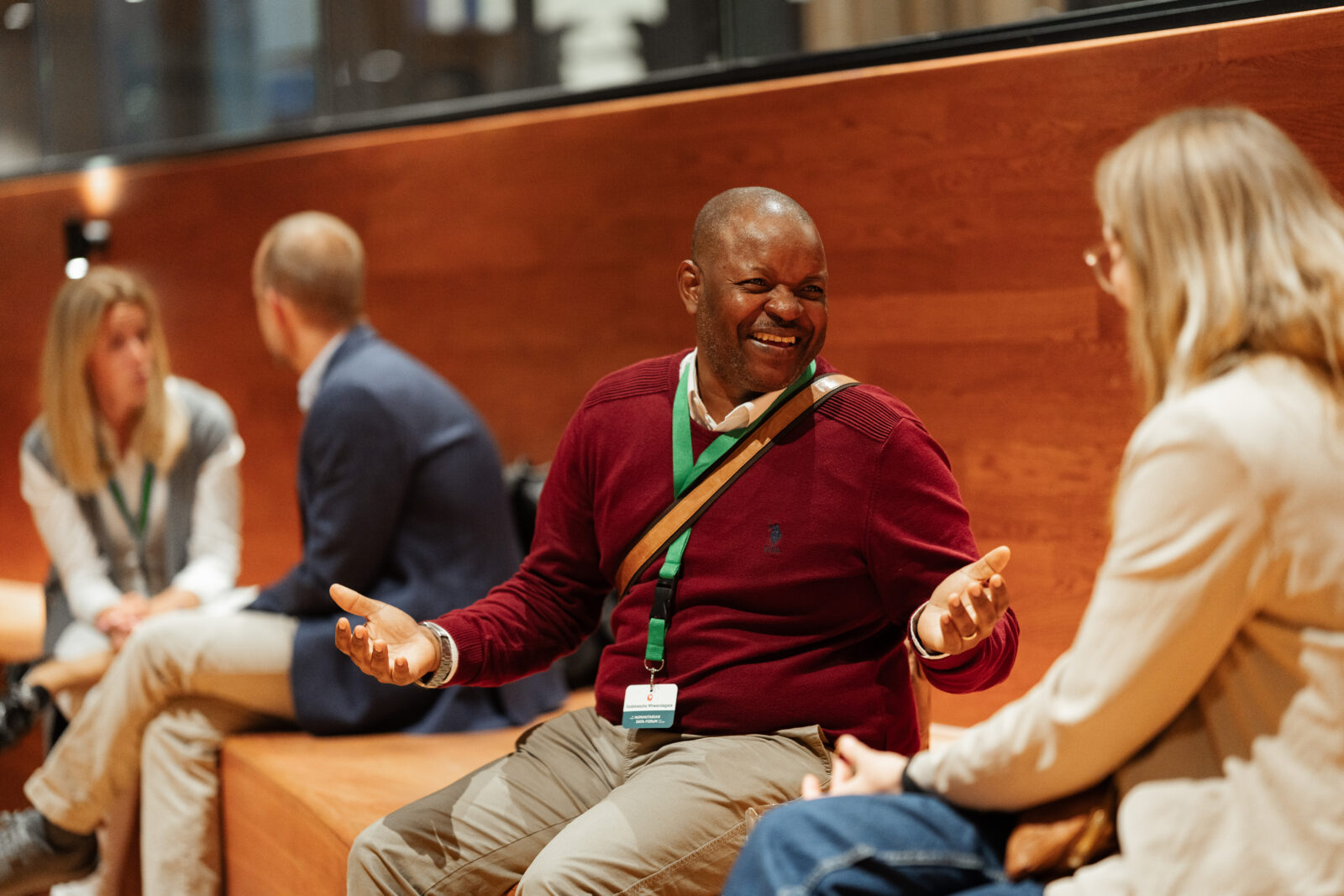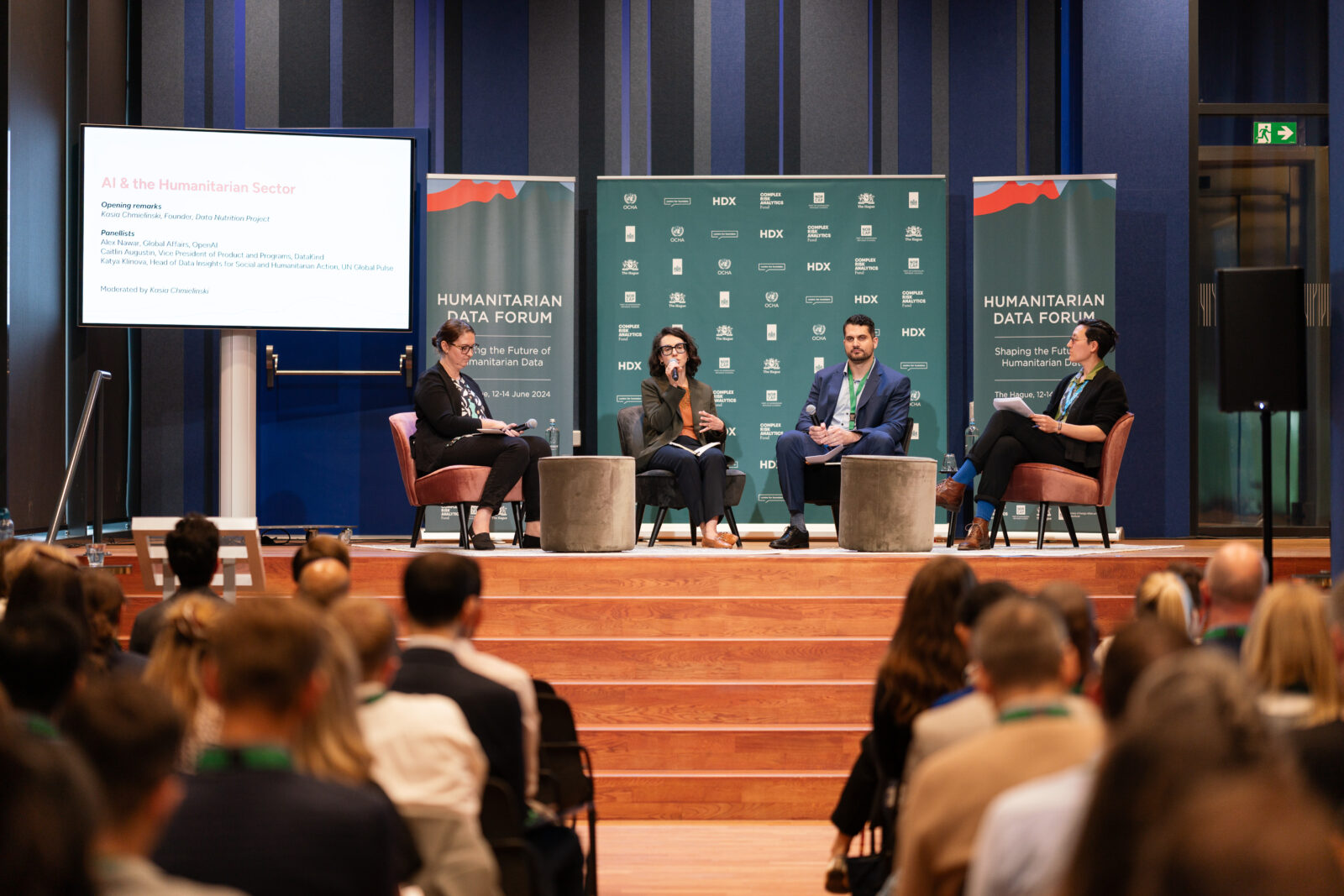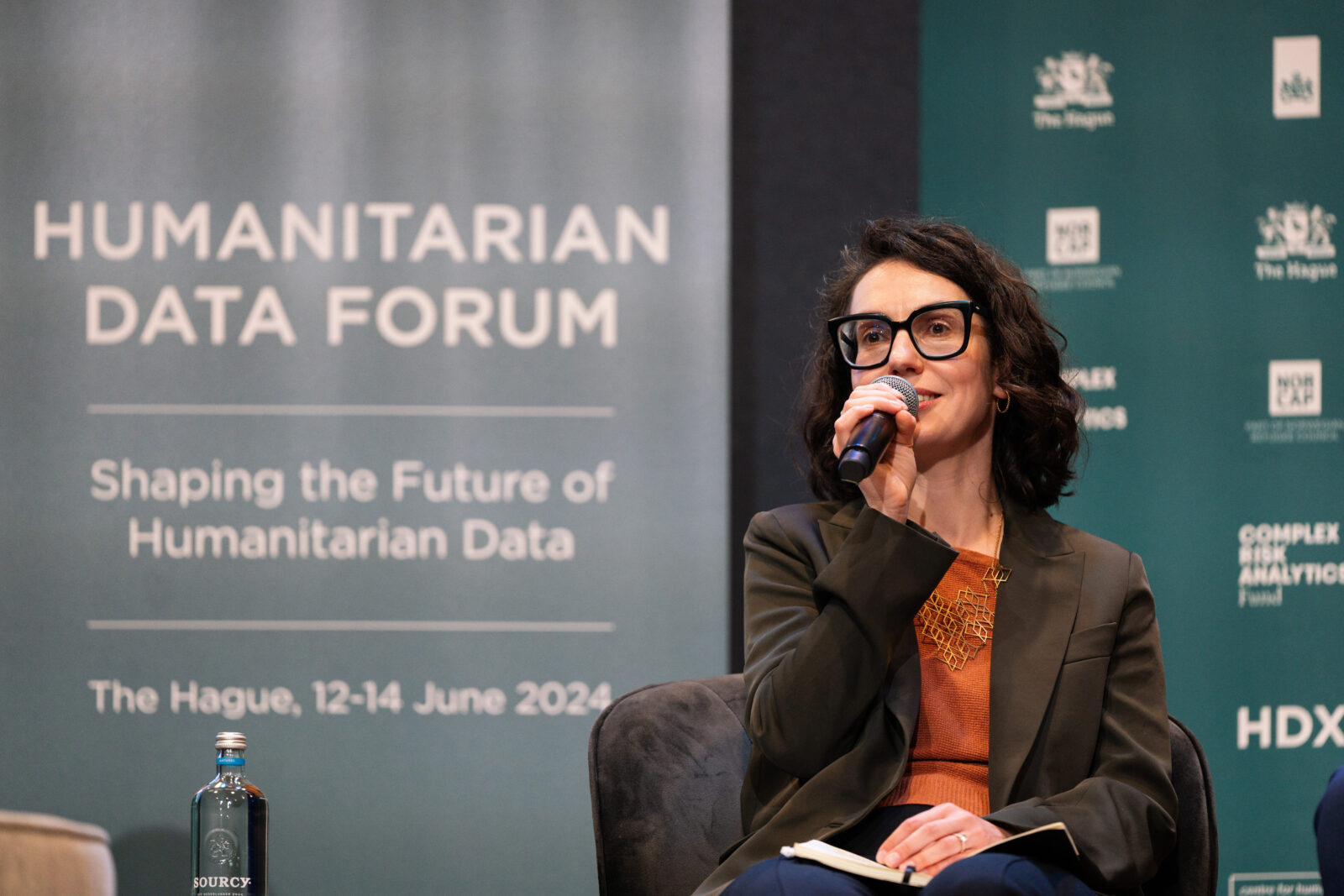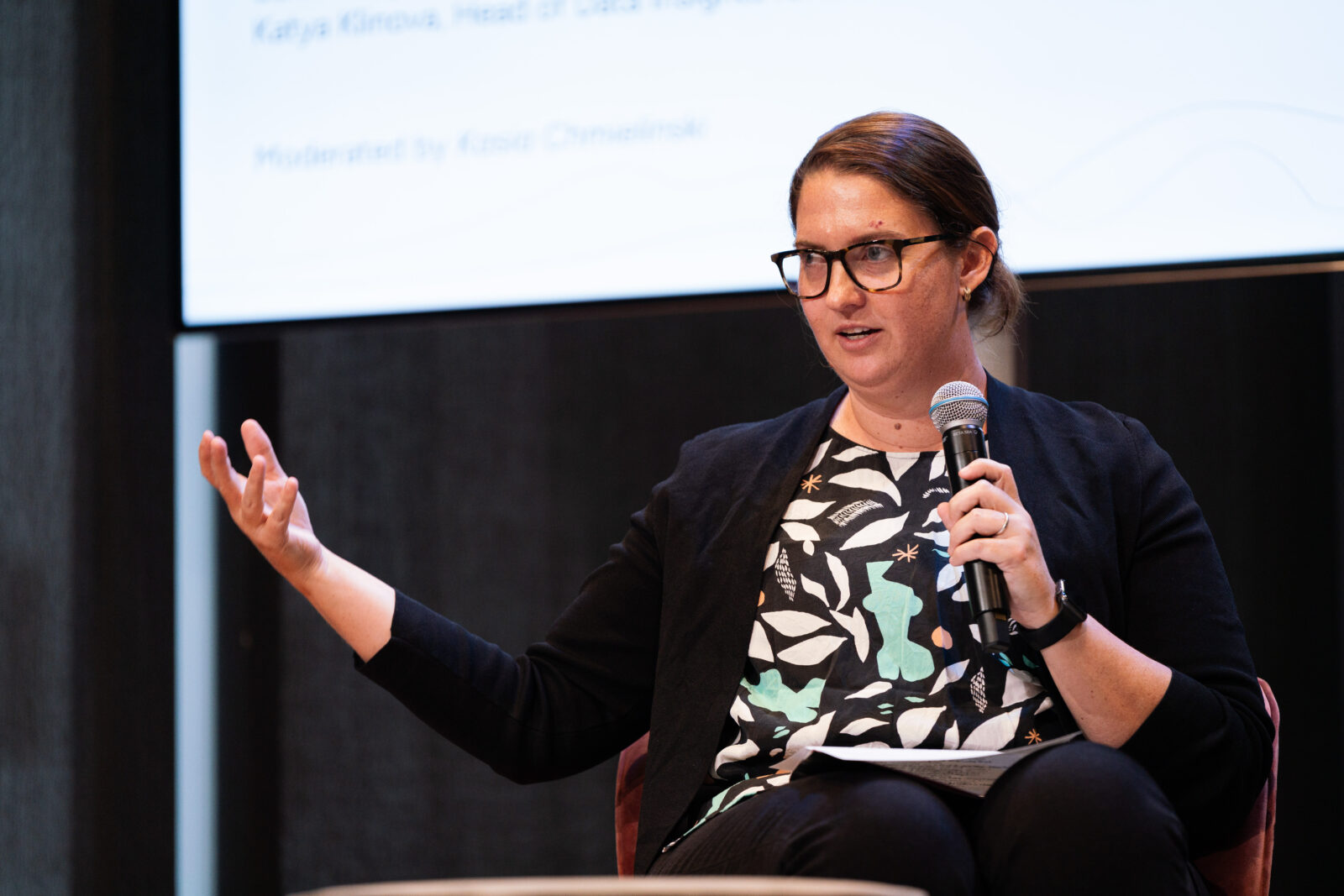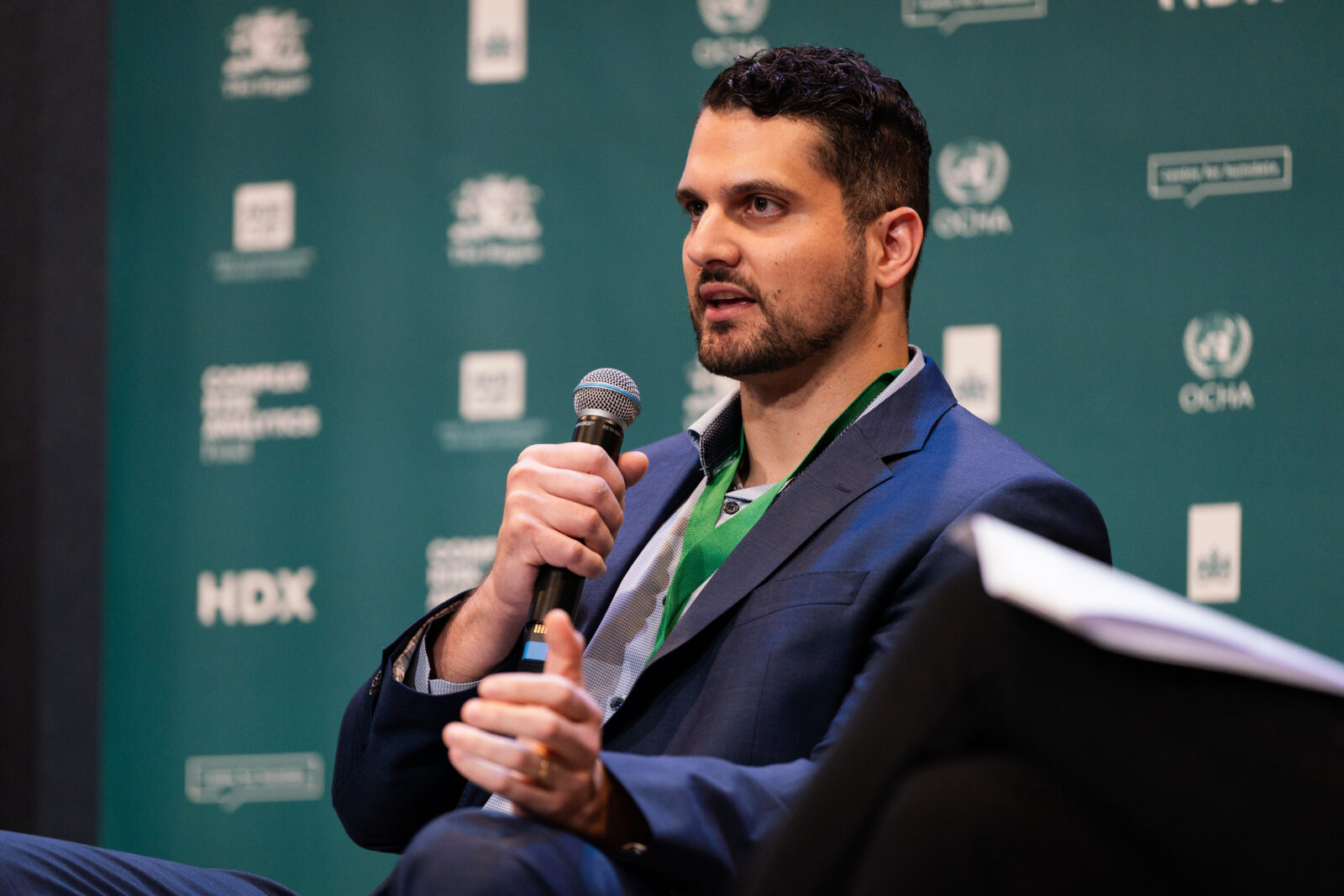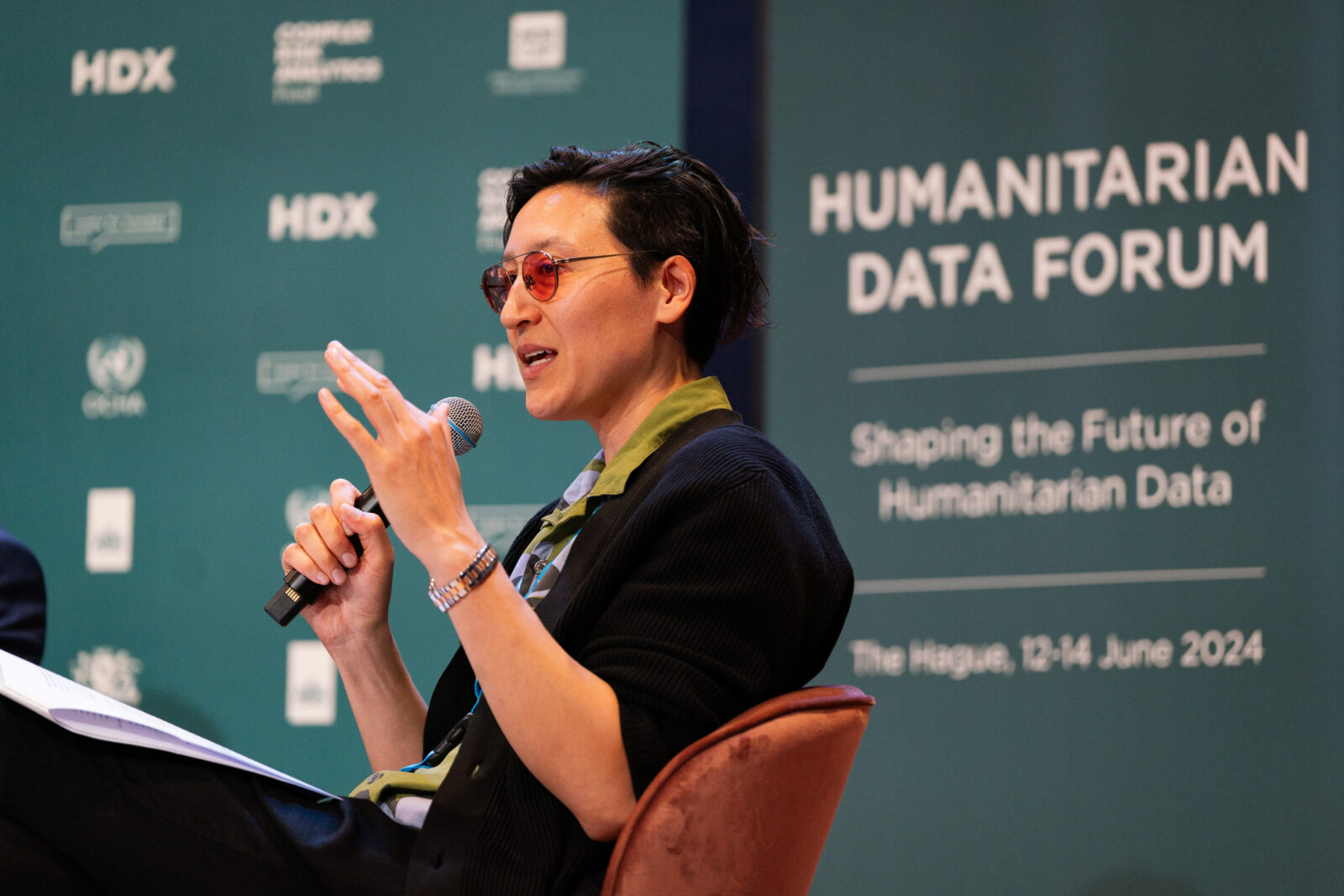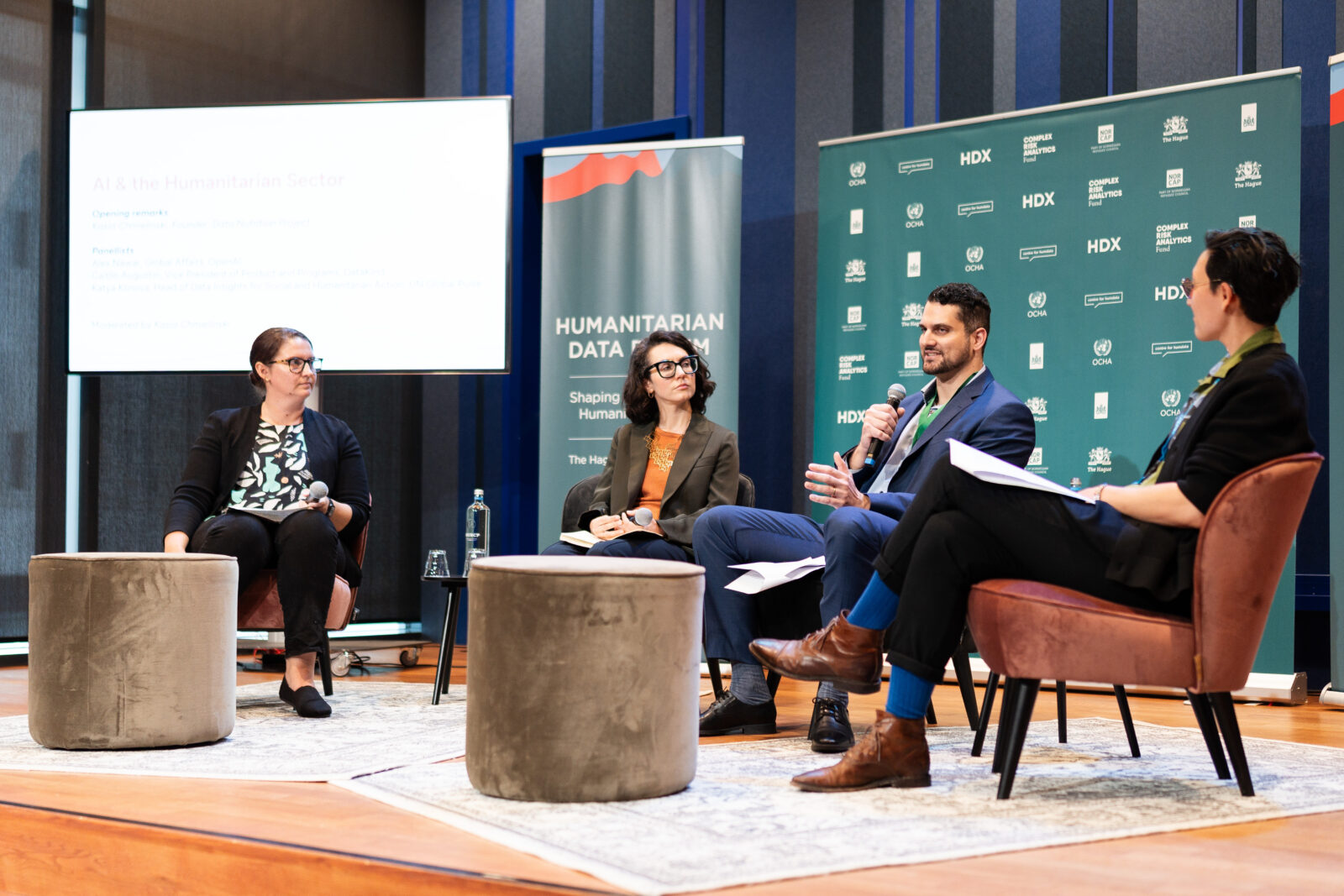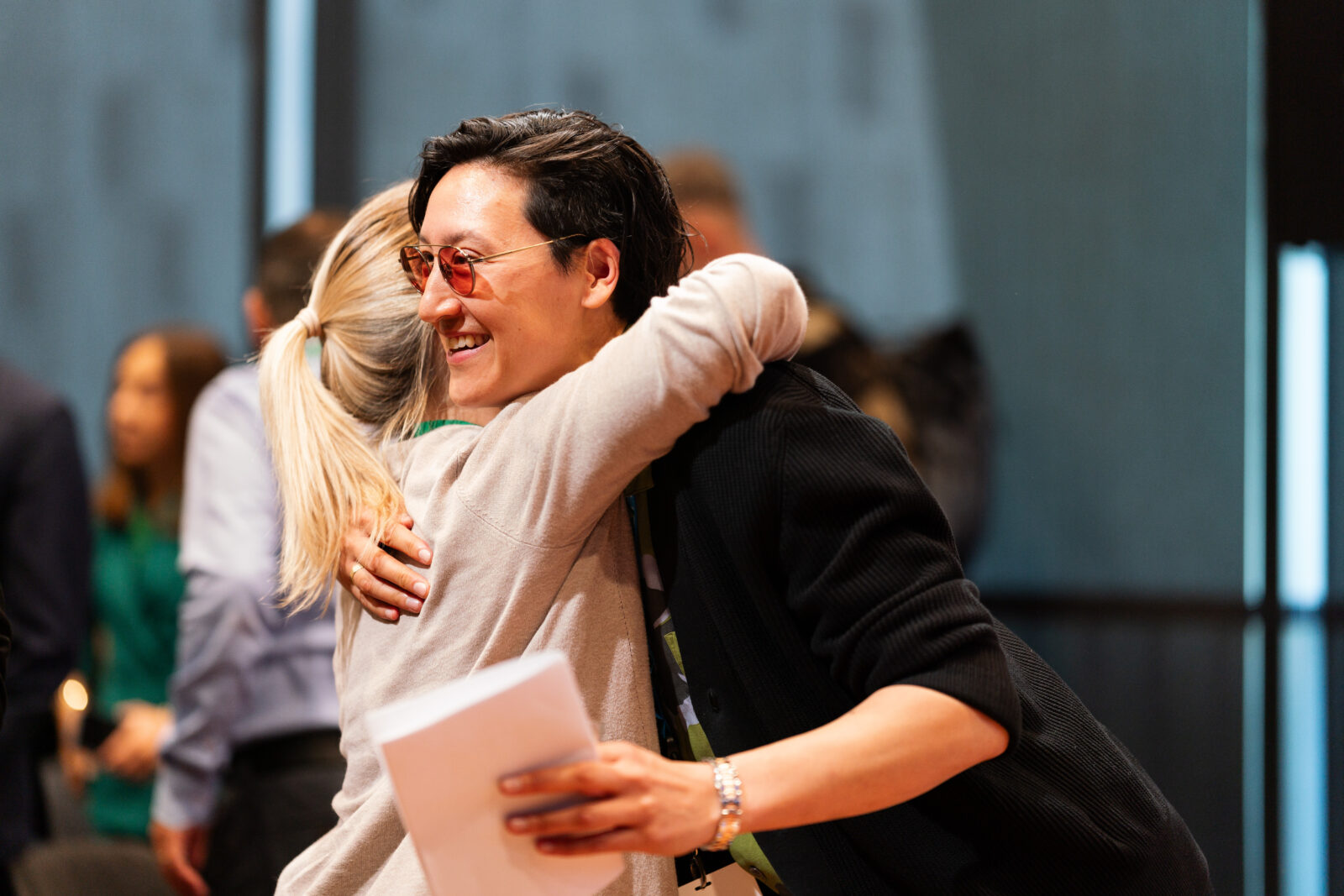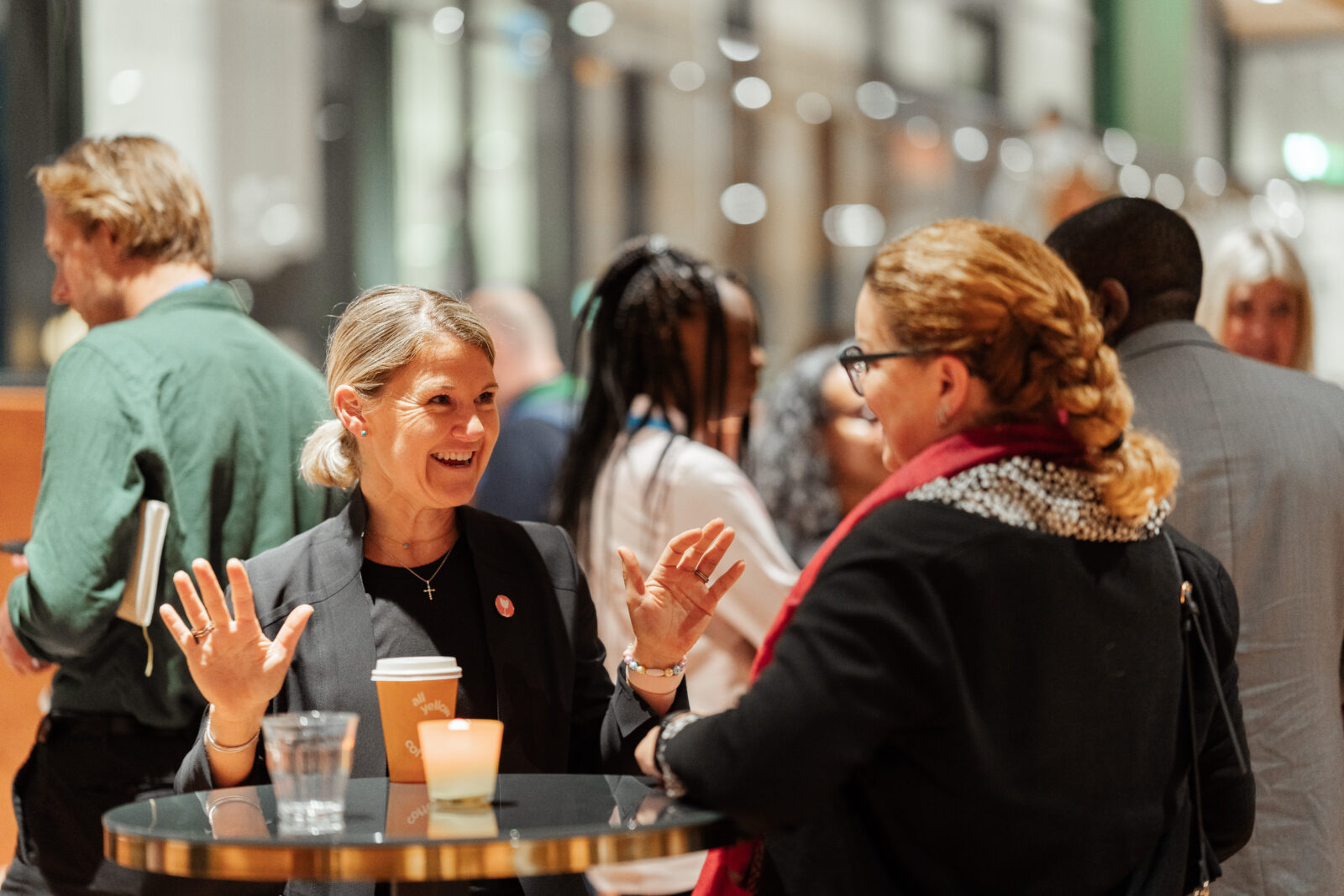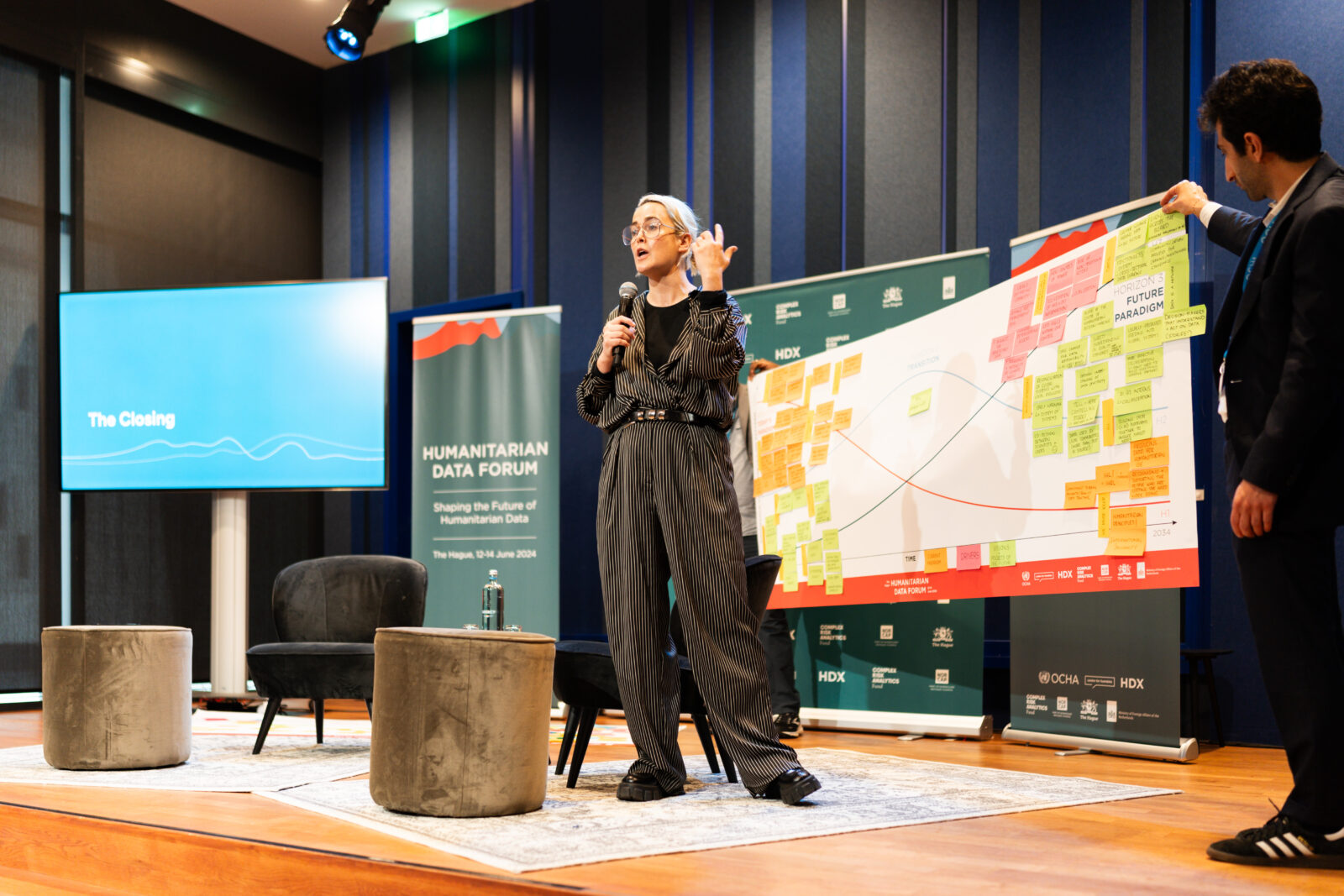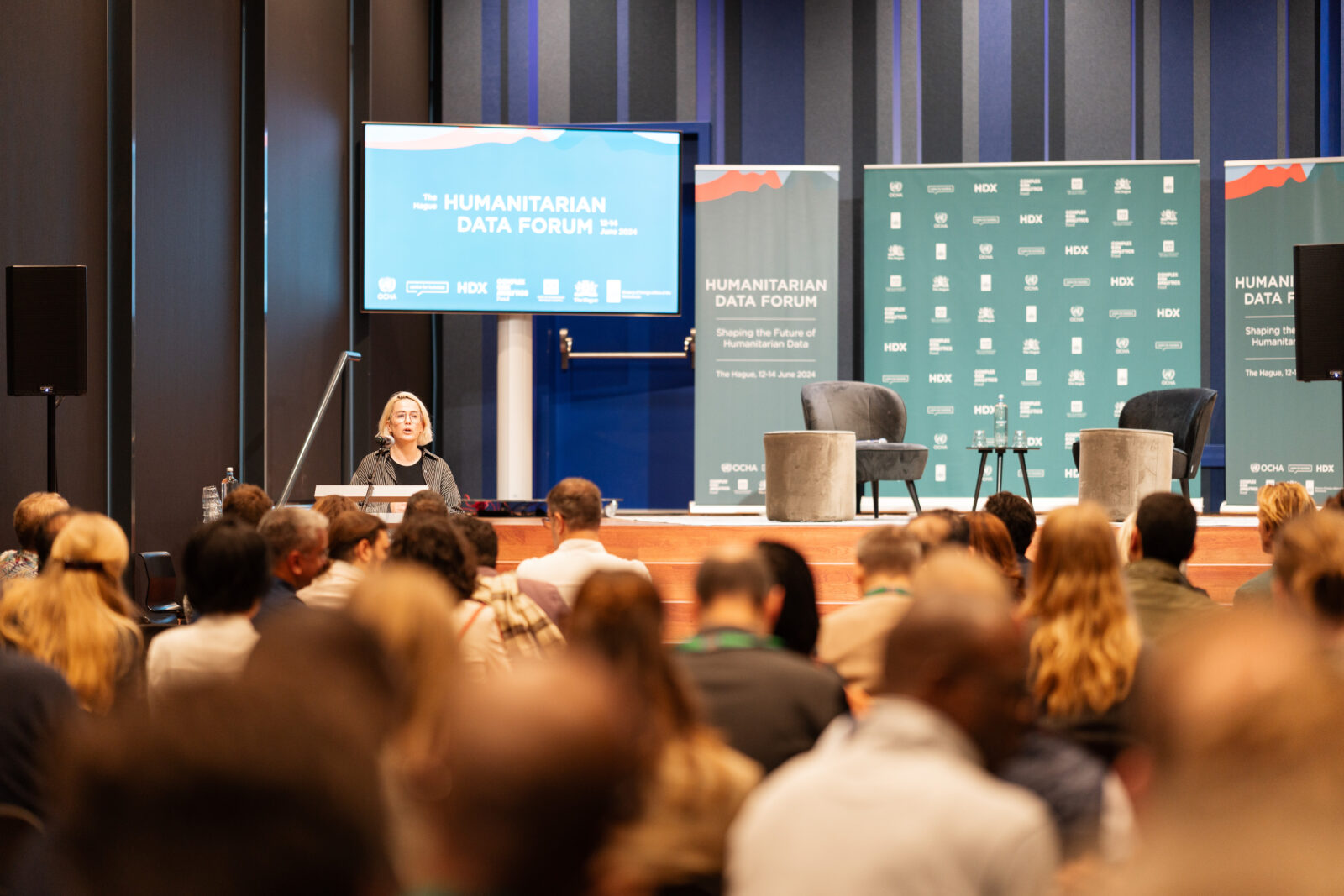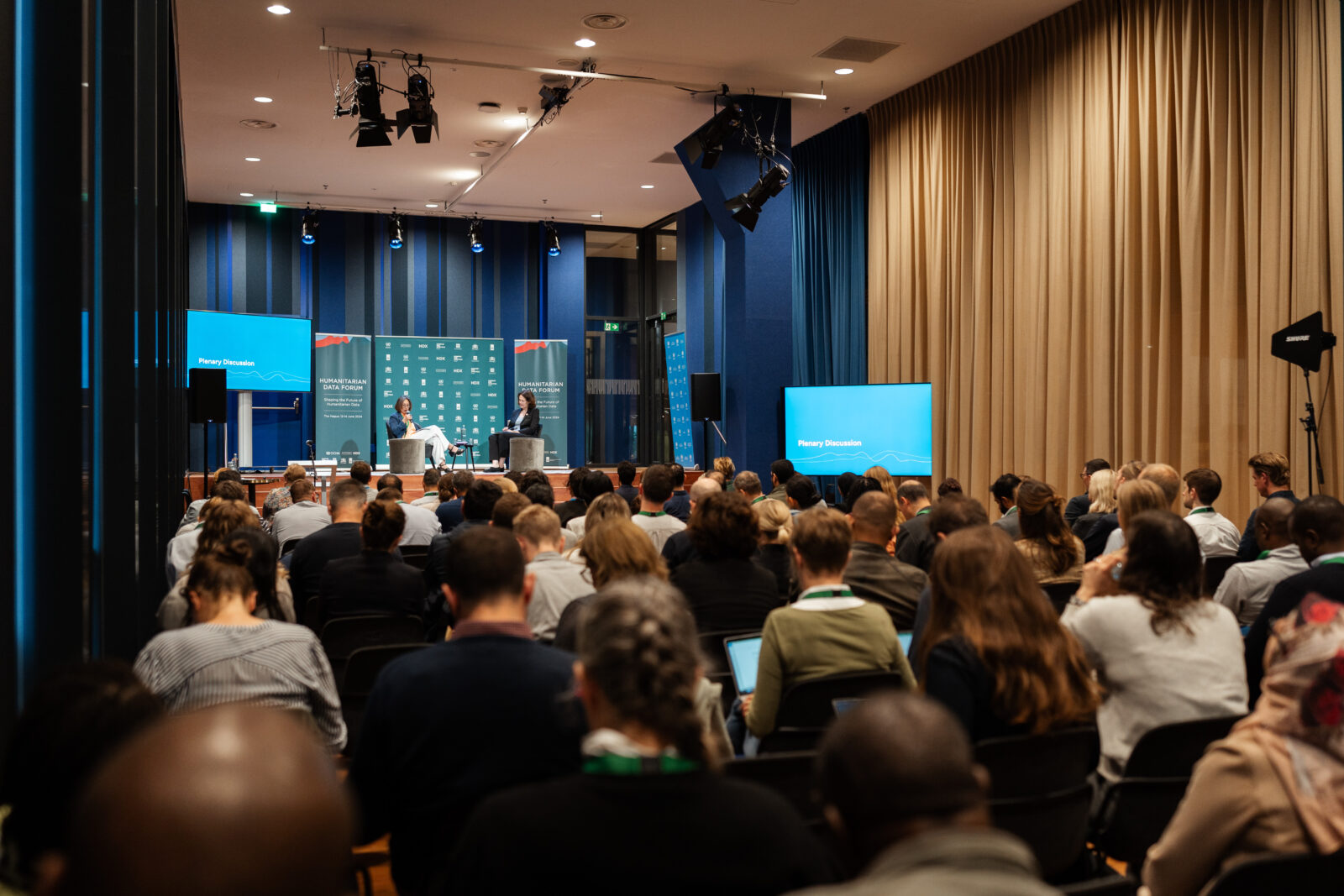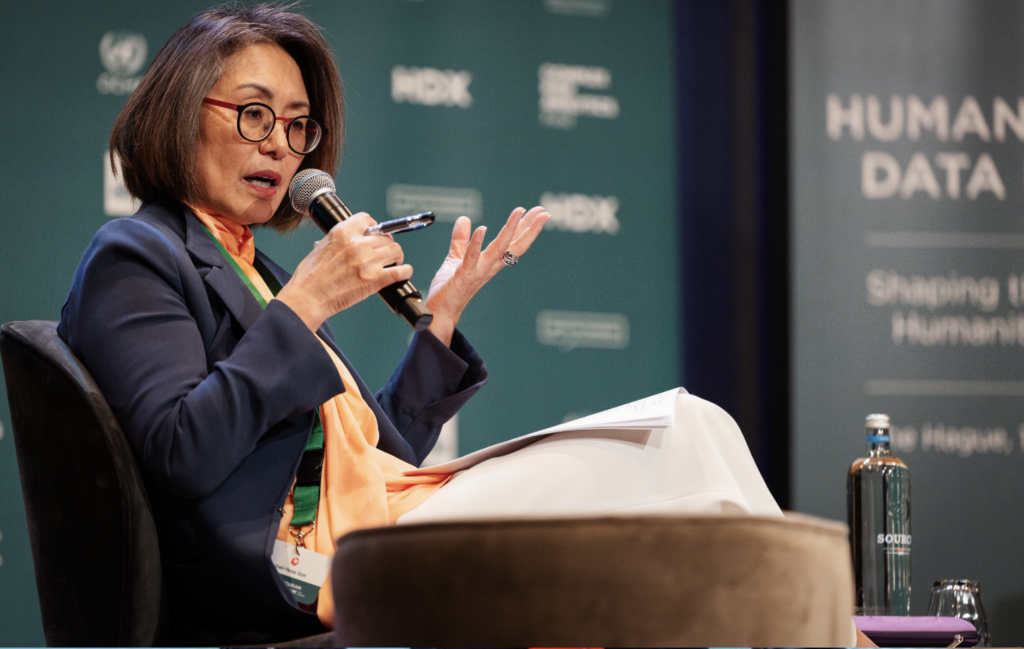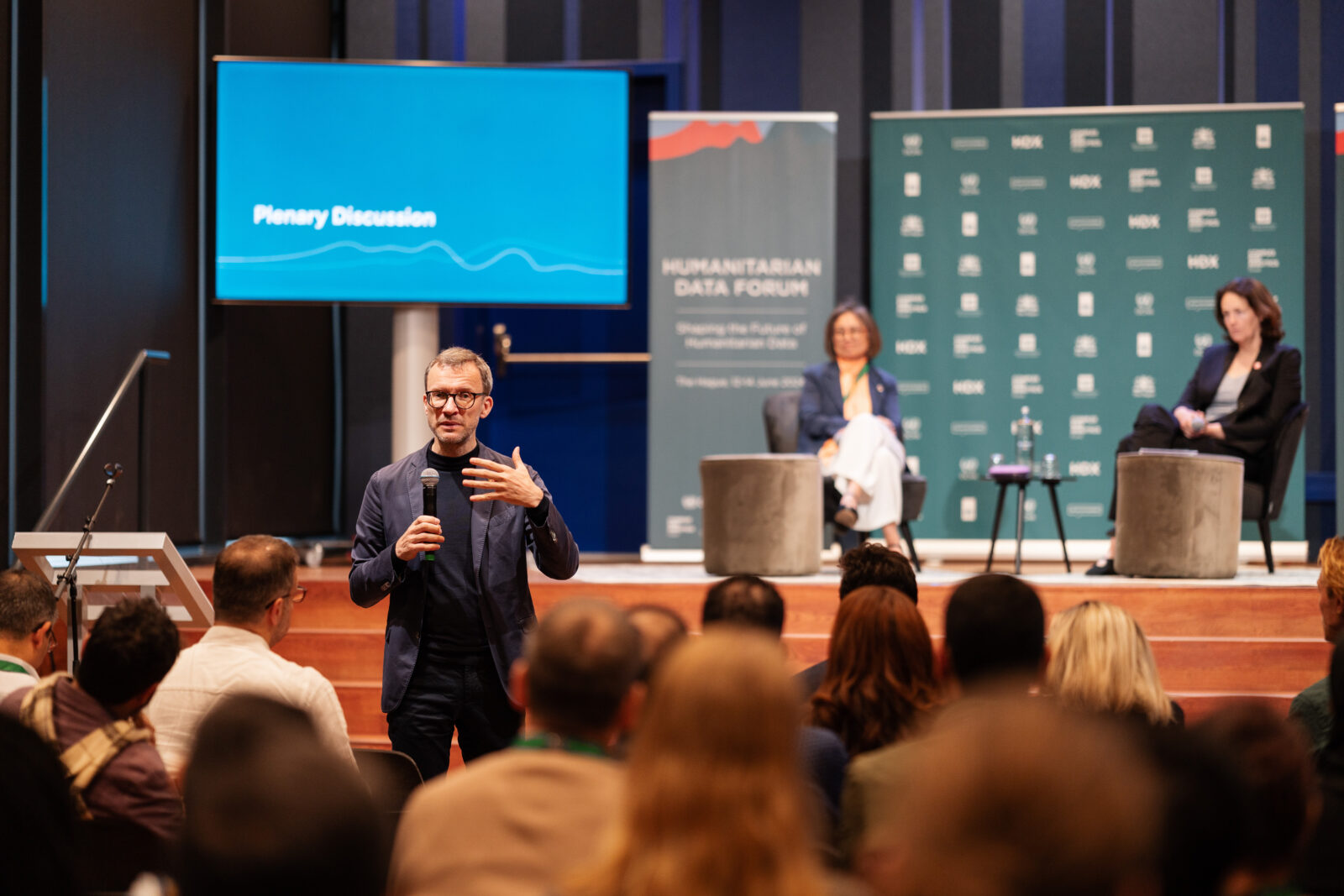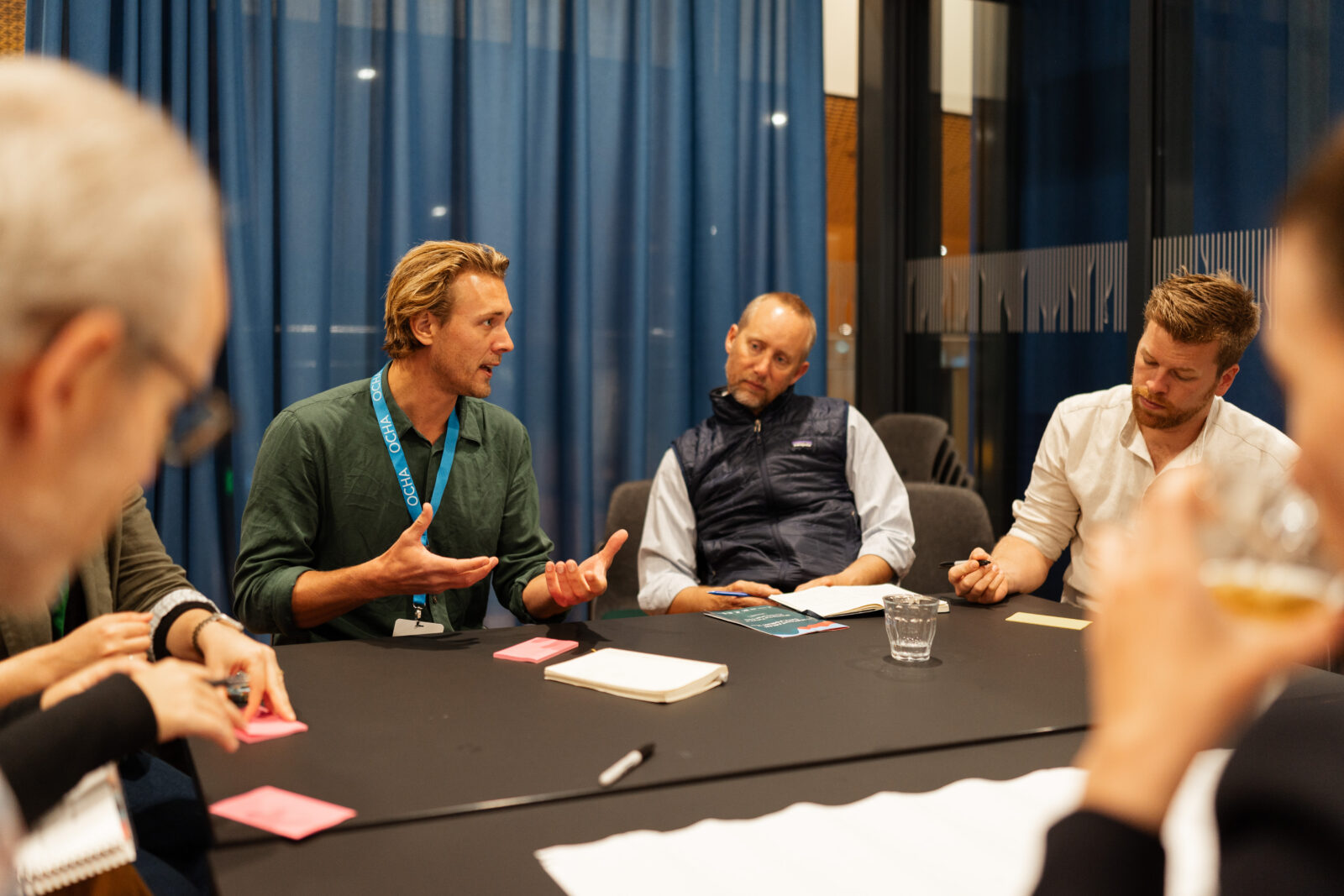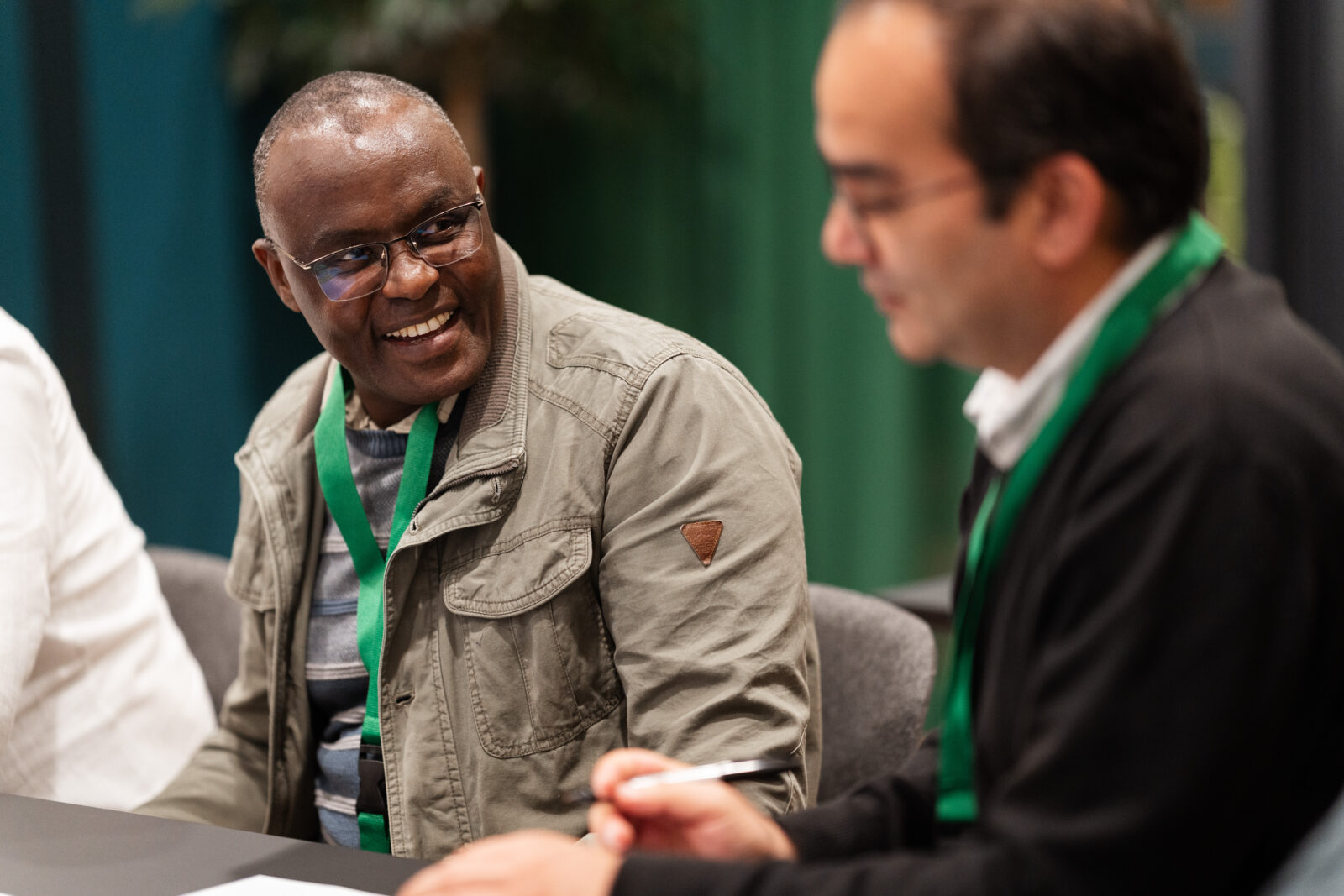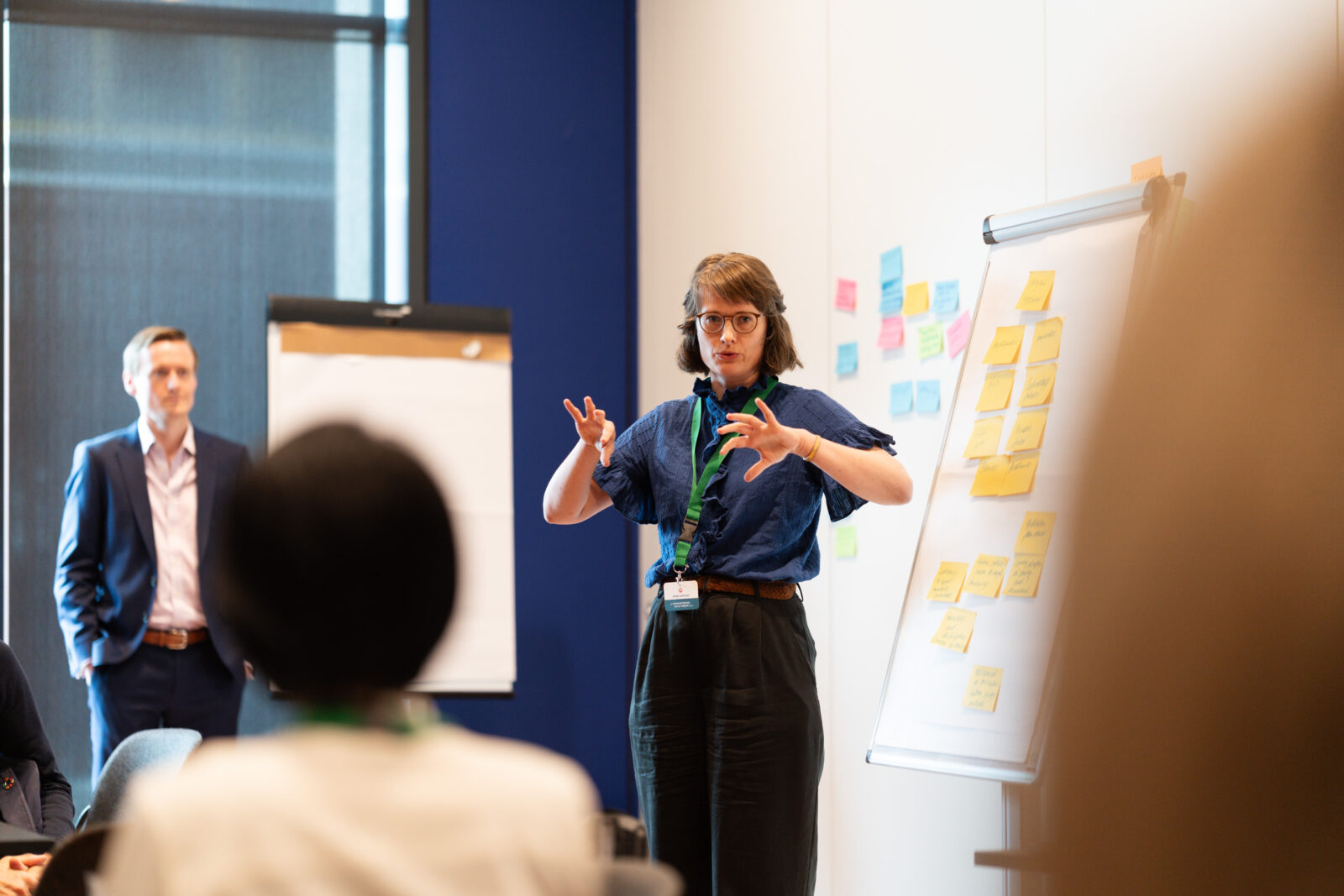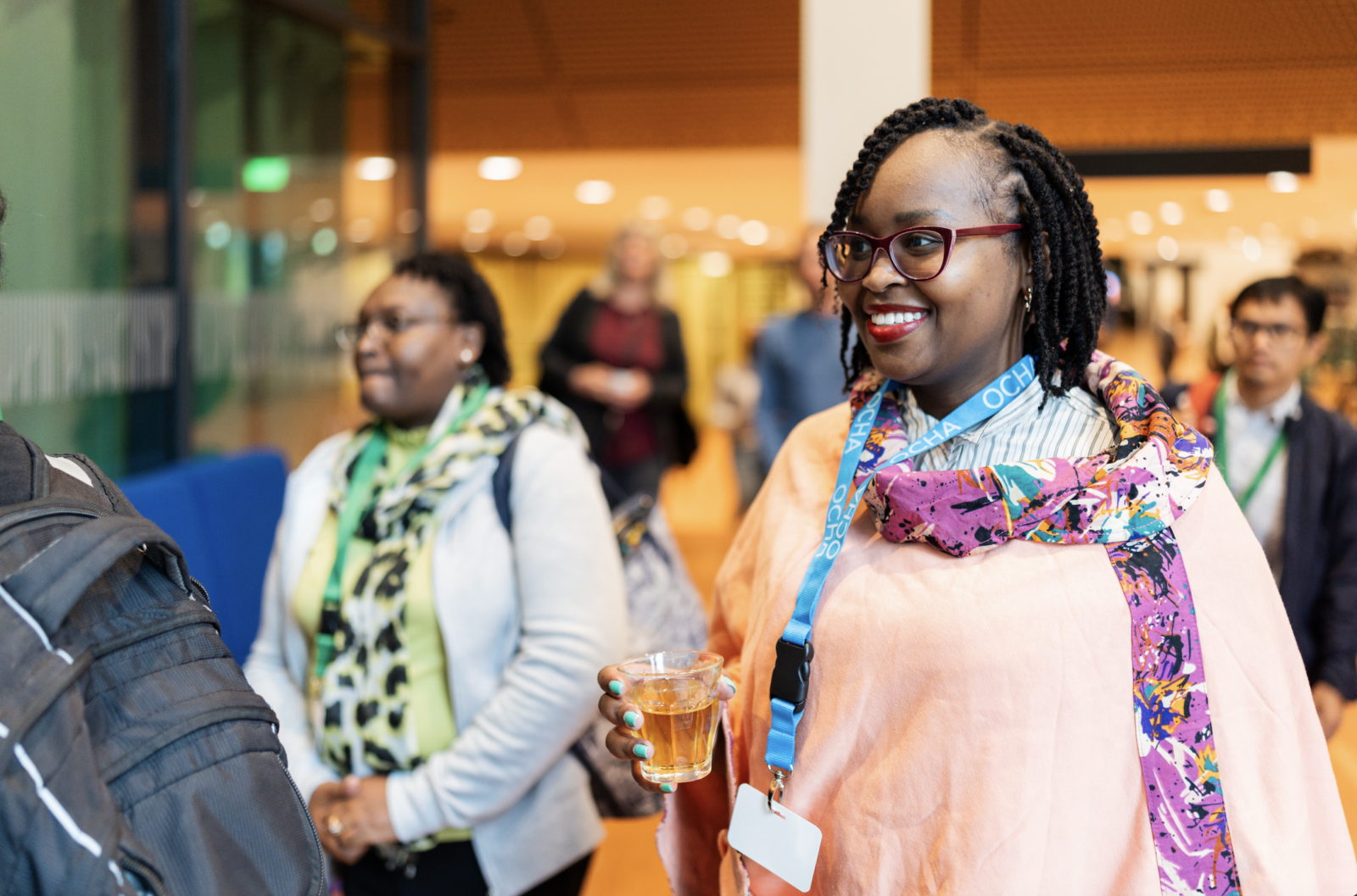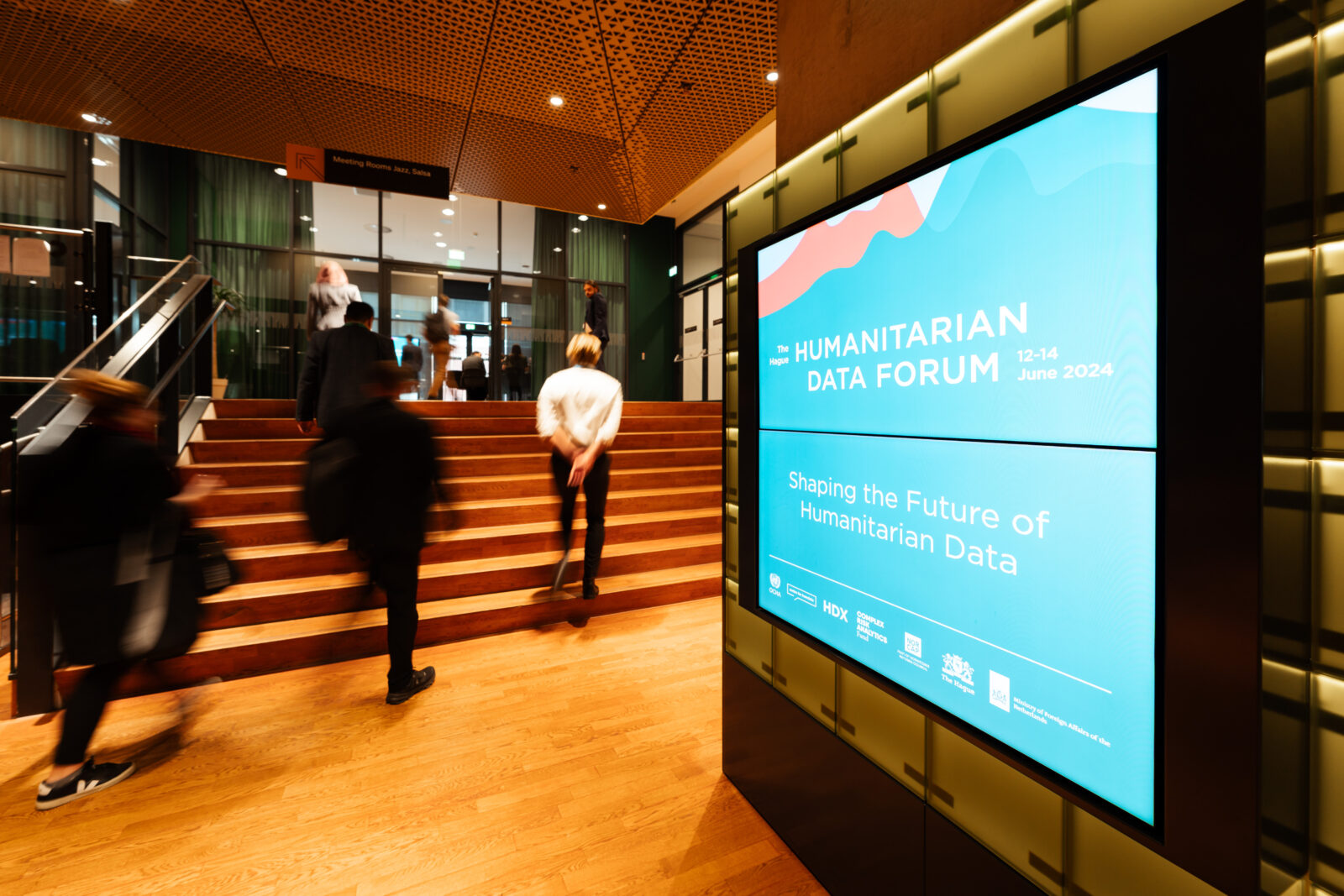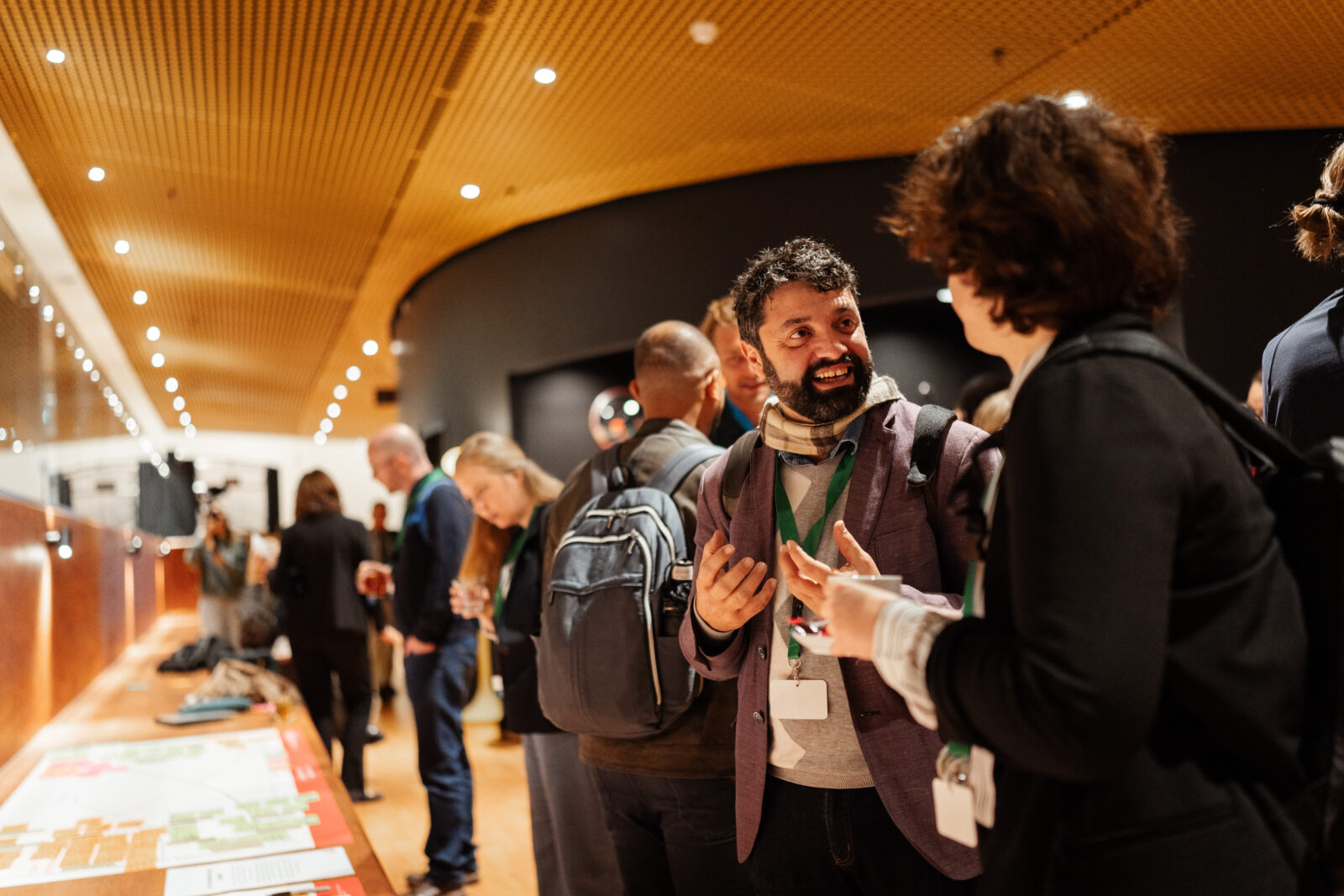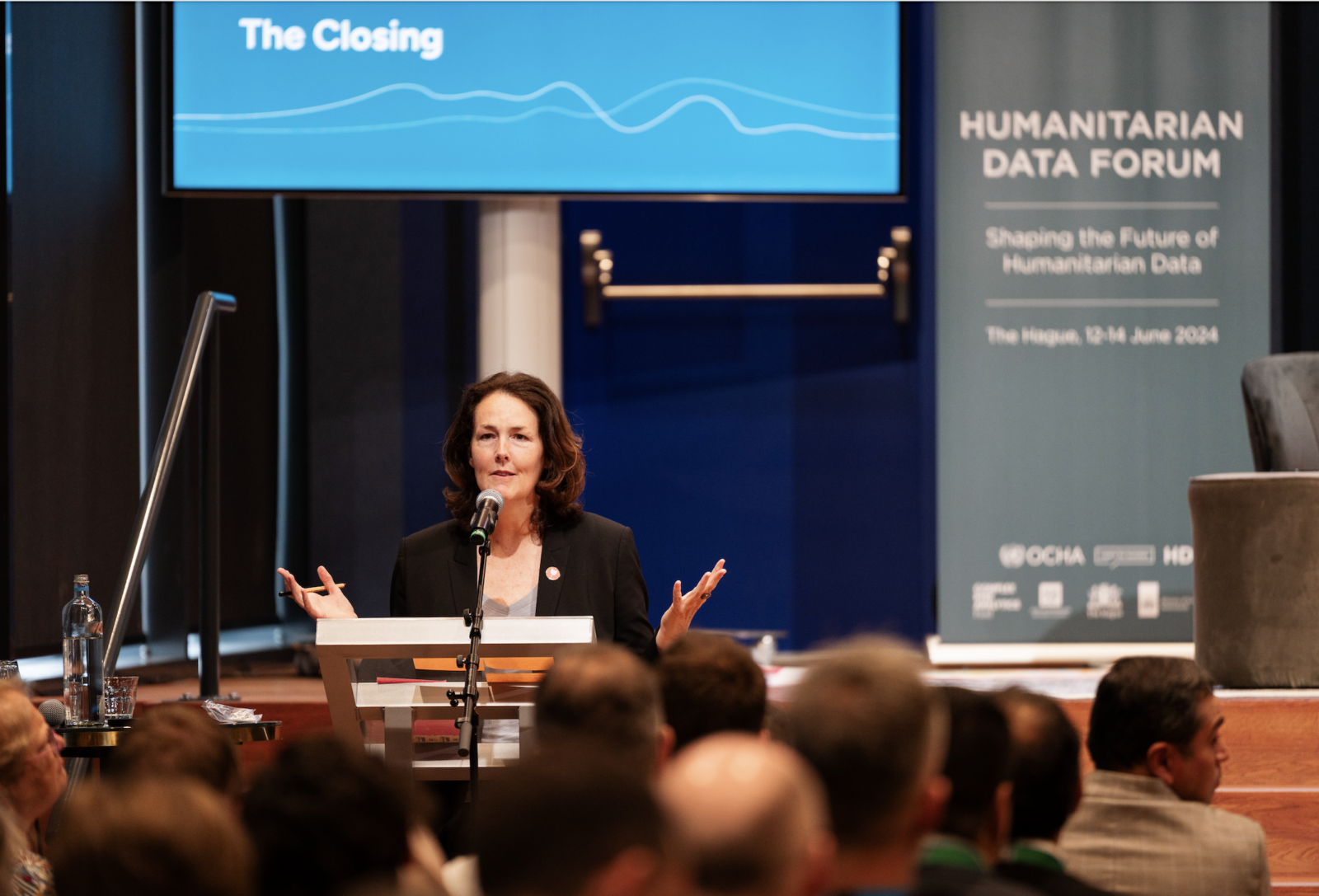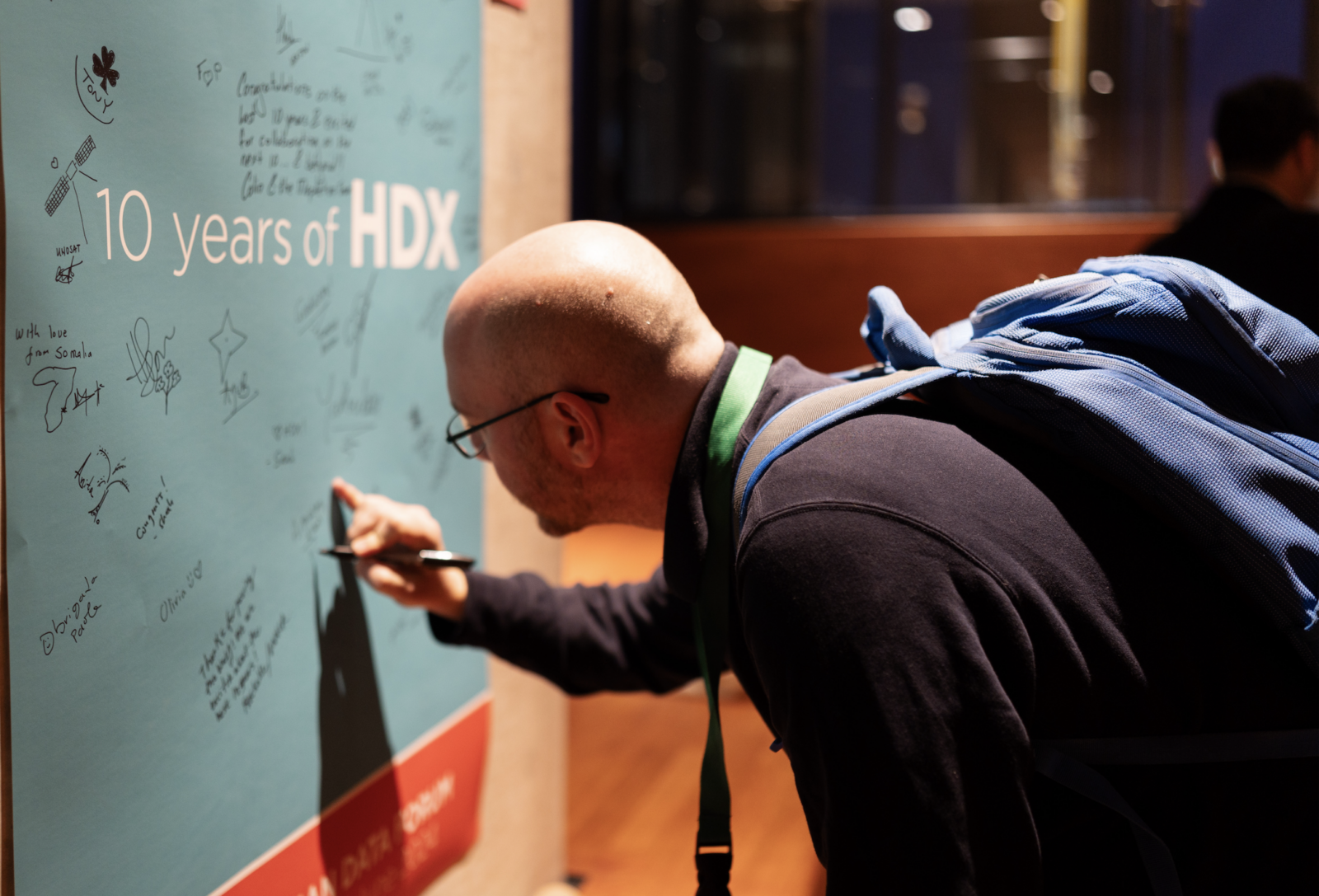Share
We had a great time welcoming partners to our first-ever Humanitarian Data Forum in The Hague from 12-14 June 2024. The event marked 10 years of the HDX platform and was a chance to reconnect with our wonderful data community. Over 160 people from 42 countries came together to collectively shape the future of humanitarian data, representing UN agencies, local and global NGOs, governments, the private sector and academia. The event was supported by the Complex Risk Analytics Fund.
The programme was shaped around four themes: strengthening our data ecosystem; integrating advanced analysis; advancing the responsible use of data and technology; and building partnerships and capacity.
We were guided in our process by ‘The Three Horizons’ framework, a foresight tool for thinking through how systems change. The first day of the programme focused on the future, the second day reflected on the present, and the final day explored how we transition to the future we want to build. Dr. Wendy Schultz, Co-Director of Jigsaw Foresight, gave a keynote to introduce futures thinking and how it can support humanitarians to ‘vision for our preferred future, explore uncertain possible futures, and plan for probable futures’.
The plenaries included thoughtful discussions on the future of the humanitarian system, the challenges of data-driven decision making and the use of AI in the humanitarian sector. Maarten van Aalst, Director General and Chief Science Officer at Royal Netherlands Meteorological Institute, gave an insightful (and somewhat terrifying) talk on the climate crisis and the consequences for humanitarian action.
There were 13 breakout sessions with topics ranging from connecting local data and global systems, integrating novel data sources, and the future of climate prediction. Insightful ideas from our partners at these sessions will inform the Centre’s ongoing work, in particular around improving data quality, advancing trustworthy analysis, and achieving data interoperability.
The thinking across the forum, and in particular in the ‘drivers of change’ session, will also guide the focus for our ongoing foresight work, as we continue to explore how data and technology will influence the future of humanitarian response.
We are grateful to the partners who were able to join us. The recordings of plenary sessions as well as a recap of the forum can be found here. Photos from the forum are available here.
